OPEN DAYS





































TYPESOFSCHOOLS OFSTED EXPLAINED ADMISSIONS PROCESS ADVICE FORPARENTS

YOUR FREE EXPERT GUIDE TO CHOOSING THE RIGHT SECONDARY SCHOOL
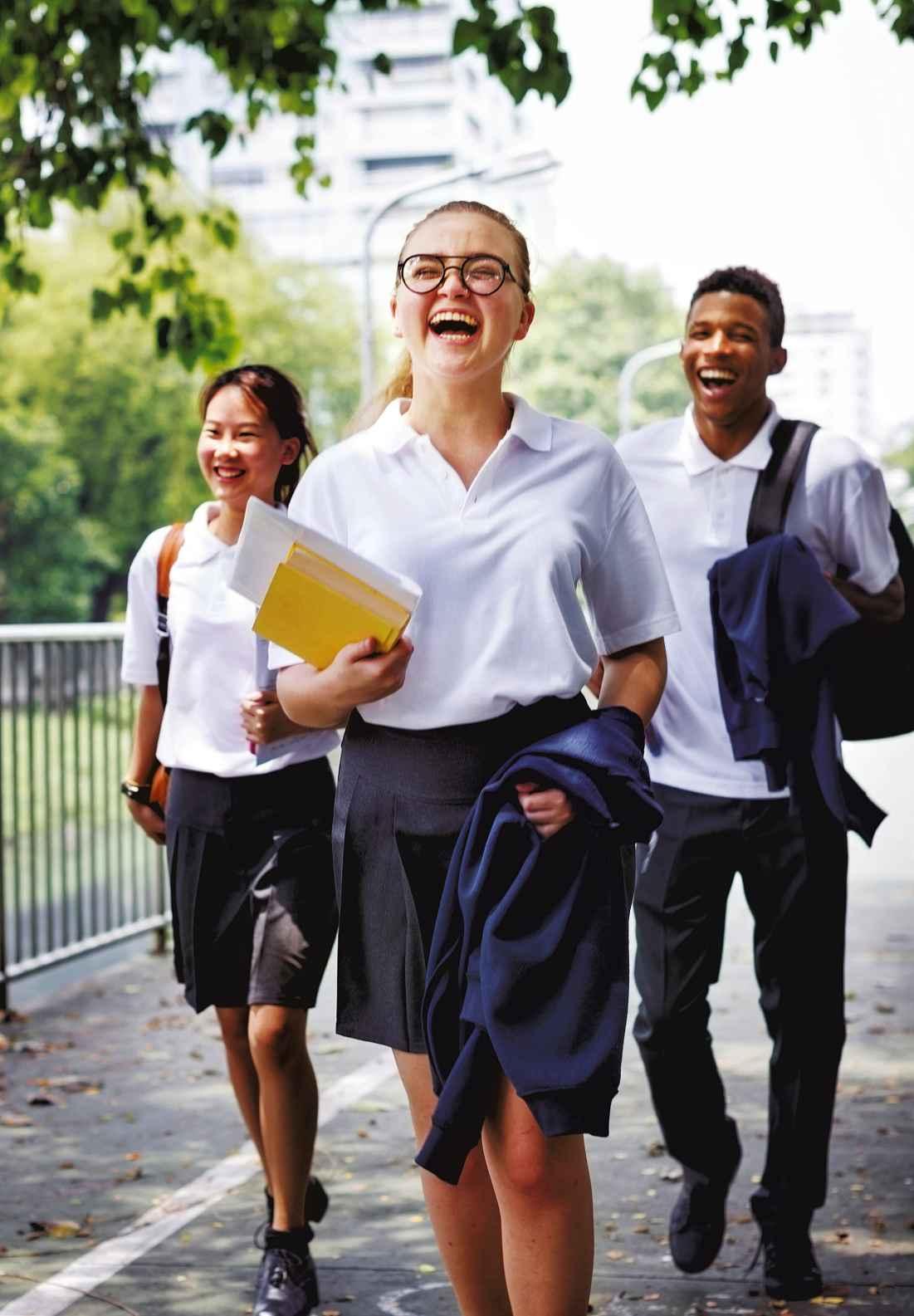
INCORPORATING ‘INDEPENDENT SCHOOLSGUIDE’ 2023-2024 SH RO PS HI RE WWW.BIGSCHOOLSHROPSHIRE.CO.UK SCHOOL





Apprenticeships Maths &English Automotive&Construction Aviation &Engineering Foundation Business &Digital Catering Hair &Beauty Public UniformedServices &Sport Health, Early Years&Education Creative&Music T-Levels ALevels Future IV It’snot toolateto apply Join us foranopen event Scan our QR code to seeall our open events and register
EDITOR
Vicki Jones
vicki.jones@mnamedia.co.uk
SENIOR FEATURES WRITER
HeatherLarge heather.large@mnamedia.co.uk
ADVERTISEMENTMANAGER
ClareWeaver
clare.weaver@shropshirestar.co.uk 01952288816
COMMERCIAL DIRECTOR
MNAMEDIA
KimberleyHazel kim.hazel@expressandstar.co.uk
PUBLISHEDBY
MidlandNewsAssociation
QueenStreet, Wolverhampton,WV1 1ES 01902313131
PRINTEDBY
PrecisionColourPrinting, Halesfield,Telford
TF74QQ
Welcome to Big School –your comprehensive guide to the next step of your child’seducation.

In this magazine you will find detailed advice on how to choose the perfect secondary school for your son or daughter This is wherethey will spend alarge proportion of the next five years and that’s why it’ssoimportant to find aplace where they will be happy and thrive.
Our guide details all of the factors you will need to consider when comparing different schools as well as information on the application process.
When looking at secondary schools, it is vital that you spend time researching the admission criteria for your area as some schools can often be over-subscribed. At the same time you will want to ensurethat you know the options available to you if you need to appeal an unsuccessful application.
Thereare also useful tips to help your
child preparefor life in Year 7and to make it easier for them to settle in at secondary school so it’sassmooth atransition as possible. This includes the uniform they will need for the classroom as well as options for their lunchtime meals and how they will travel to school each day
Thereisalsoa spotlight on the broad range of schools across the region that are ready to welcome you to their open days over the coming months.
The guide also looks to the futureand the qualifications your child will be working towards over the next few years as they continue their education. And thereisalso information on how you can get involved in their secondary school by becoming a member of the PTA.
Starting ‘Big School’ is ahuge milestone for both your child and you as parents and carers and we wish you all the best for the future.

WELCOME
Acommercialpublication
4: The next big step 5: A parent’s view 6: How to apply 8: Types of school 10: Fee-paying schools 11: Ofsted 12: How to appeal 14: Open days 15: Taster days 16: Subjects 17: Homework 18: Transport 19: Getting kitted out 20: After-school clubs 21: PTA 22: Qualifications 24: Eating well 25: Tackle bullying
Work experience
Spotlight on schools across the region
Independent Schools Guide
CONTENTS
26:
27-34:
35-50:
Taking thenextbig step in your child’seducation
It will soon be time to embark on the next big stage of your child’slife: secondary school.
Choosing the perfect place for your child to start Year 7can be one of the most difficult decisions that you ever take as aparent.
It is important to thoroughly research all of the options available to you so you find the best fit for your son or daughter
Youwill want aschool wherethey are encouraged to achieve and reach their full potential. Councils allow parents to make up to six preferences of schools, depending on whereyou live, with the final decision made according to the criteria set by the local authority or individual schools.
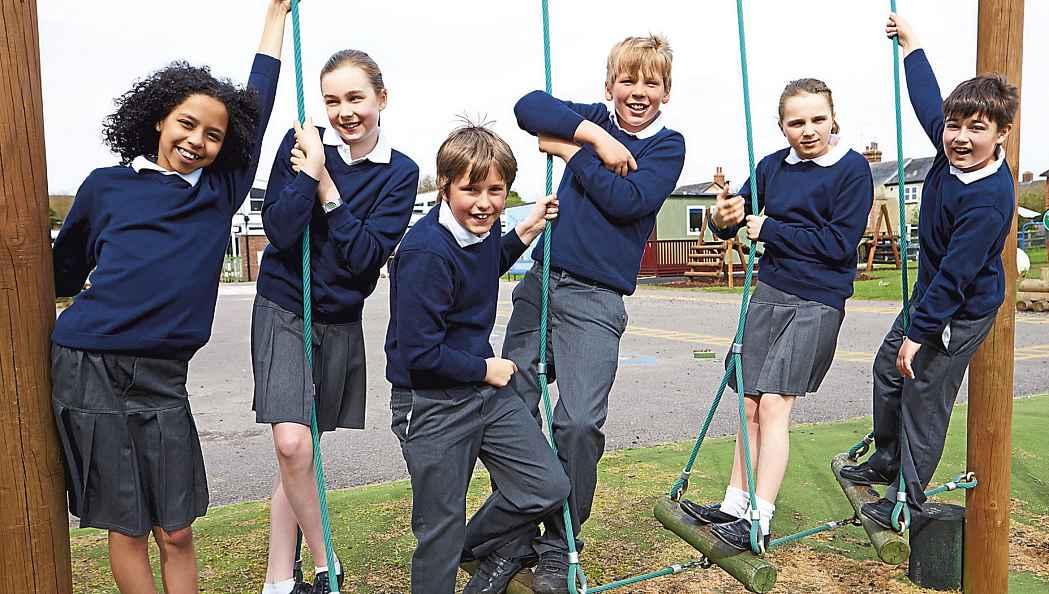
Although this can feel like alot of pressure, how you end up choosing your secondary school preferences will probably be very similar to how you found your child’sfirst school –with some of the same factors influencing your decision.
And remember –getting this next step right can help them on the way later in life and in their futurecareers.
Youmight be wondering whether you want acommunity school or an academy? Do you want to pay for aprivate education or send your child to agrammar school?
During this important decision process you will be looking at schools to see what teaching and sports facilities they offer pupils.
Youwillnodoubt also be examining the results they go on to achieve, as well as the support offered inside and outside of the classroom.
Schools will soon begin holding open days giving you the chance to have a proper look around and allow your child to get afeel for the place.
Now they areolder,they will probably have views on wherethey want to go, which you will no doubt want to take into consideration.
Youmight want to consider whether the school caters for the things your child is interested in and what opportunities therewill be for them to develop these interests further.
Think about the ethos of the school
–does it match your own cultureand values?
Morethanlikely they will want to go wheretheir friends aregoing.While this probably shouldn’tbethe sole reason for choosing aschool, if your child struggles to make friends and you think they will find it difficult going alone then it can be a worthy consideration.
Above all, you will want to be able to ‘see’ your child fitting in there.
Proximity will always come into play as nearly all schools will use this as one of the main criteria when considering applications.
So you might have acertain school as number one on your preference list but it will depend on how many other parents have applied and how close they aretoits gates.
Having siblings at the school already will also give applications extra weight.
This means it’sessential to research your options well –soifyou miss out on your preferred choice you will be wellinformed on the others.
4
Education| THENEXTSTEP
Secondaryschoolmoveis abig change forustoo!
phones etc. It should be about telling them they aregoing to expand their range of friends, not lose them.
Even the most stony-faced of parents must have found it difficult to keep their emotions in check.
My 11-year-old daughter Eleanor’s primary school ‘graduation’ was just about to reach its conclusion. The song ‘When IGrowUp’, from musical Matilda, began playing in the background and the school’s overhead projector started displaying photographs of all of the year six pupils as babies or toddlers.
Therewas laughter aplenty from the pupils as they ribbed their classmates about the images of how they all used to look. But, while they chuckled, Iwas struck by asense of sadness because this was their final week as agroup –having been together since the age of four
And then it got me thinking, is it the youngsters who aremost impacted by the transition from primary school to secondary school, or their parents?
Obviously,asadad, Ihope it is us parents who find it hardest because you naturally want to take the pressures and fears offyour child as they embark on the next stage of their educational journey
Ithink fromaparental point of view, you do see primary school as acomfort blanket. In the main, you don’tparticularly have any fears when dropping your child in the morning, beforeheading offtowork. Youknow that, while it’snot astroll in the park and they arelearning every day,they don’thave those pressures that life throws at you the older you get.
Secondary school highlights the fact that, in the words of that Matilda song, they are, well, growing up. So, putting aside your sadness that our children aregetting older,how do we make the transition as smooth as possible?
In our case, we explored all available options when it came to choosing a school for Eleanor –and we strongly took her opinions into account too.
All schools hold open evenings and it’simportant to gettoasmany as you can. We can all read Ofsted reports but

they arenot the be all and end all, in my opinion. They offer guidance, yes, but trust your own judgement too. Visiting aschool to see their work for yourself gives you a real feeling for aplace, the chance to meet with staffand talk topupils at the school. We found ourselves either disappointed or impressed with some schools and pleasantly surprised by others.
It was really important to take Eleanor, we found. For one, we saw her eyes light up when inspired by teachers at one school. On another occasion, she left in tears because she didn’tlike aschool as much as she had hoped to and her best friend had already chosen to go there.
Incidentally,that prospect of your dearest son or daughter being separated from friends is one of the biggest fears.
But, as one teacher told me: “You have to encourage your child to step out of their comfort zone and belong to anew community.They could dwell on negatives such as ‘I won’tbewithmyfriends’.
“But, as parents we should say ‘just think of all the new friends you aregoing to make that you can tell your other friends about’.”
After all, times have changed. Children can stay connected now through mobile
So, when we made our selection of school, based on the visits, which of her friends wereattending became a secondary consideration. We focused much moreonthe school ethos, its progress over the past few years, and the vibe of the place and other factors.
We weredelighted when we weretold Eleanor had got into the school that she –and we –wanted her to attend.
Some of her friends didn’tget their first choice but did so on appeal so be aware thereisthatopportunitytomake acase.
Since our choice was confirmed, Eleanor has had acouple of days at her new school to help her settle in. She seems happy,which means, as parents, we arehappy too.

And now it’sall about preparing for the big day.I’d advise getting uniforms sorted early,ifpossible, to avoid alate panic.
We have also completed two or three travel recces, in order to get Eleanor familiar with her surroundings.
It’sworth getting bus information sorted or an idea of places to park up nearby to drop your child offorcollect them. They will need independence and so probably won’twanttosee any of us at the school gates!
We arealsoworking on her bedroom, trying to fit adesk in whereshe can work once she faces the challenges of homework. We’ve also talked about time management and dealing with that work when she is set it.
We arehoping that abit of early planning can make the transition abit easier,but appreciate it will be abig change for all of us.
But ateacher Ispoke to said the most important thing for parents and children to realise is that, just like at primary school, teachers will be theretosupport the transition and beyond.
“It’satime for them to matureand experience life,” Iwas told.
“It’sthe next stage now of their education when they develop their own initiative. Therewillbebumps along the way but it will be awhole newlife adventure.”
5
5 Education| APARENT’SVIEW
Matt Panterreflects on theprocess of seekingasecondary school for his daughter Eleanor
FREQUENTLY ASKEDQUESTIONS
n Will my childautomatically transfer from primaryinto secondaryschool?
No, thisisnot thecase. All applicationshavetobe consideredinlinewiththe admissionscriteriafor the school they areapplyingto. There is normally no priority giventochildren attending primaryschools associatedwith particular secondaryschools.
n What is thedeadline for applicationstobesubmitted?
Applications canbedonebypost or online. Theclosing date for secondaryschoolapplicationsis statutory andisOctober 31
n What happensifI submit my application after thedeadline?
Unless therewere special circumstanceswhich stopped youfromapplyingbefore theclosing date,thenyour application will only be consideredafter thosethat were received before the deadline. If therewere special circumstances, then supportive evidencemustbeprovidedatthe time of your application.
n What happensifI don’t complete andreturnan applicationform?
Your childmay notbeallocated a school placeuntil allthose who didhavebeenofferedplaces. It is then possiblethatyour preferredschools will be toofull to admityourchild
n When will I find outwhich school my childhas been allocated?
Offerletters,oremails, will be sent outtoparents on March1, 2024.
Theapplication processexplained
Applying to secondary school for the first time may seem abit daunting, so it helps to fully understand the process.
Letters will be sent out by councils detailing the steps you need to take. They always encourage parents to apply online, but paper applications will be available if you prefer
Each council co-ordinates admissions for all maintained schools in its area and will make the offer of places.
Up to six choices can be stated on the admissions application, depending on whereyou live, in order of preference and they can include schools outside the area in which you live.

Places arenot allocated on afirstcome, first-served basis. All schools will consider applicants on an equal basis and parents areadvised to put forwardmore than one choice.
Also, all applications will be considered against the admissions policy of the school concerned, regardless of which borough or county the child resides in.
The entrance criteria will depend on how the school is run –whether it’sthe council, governing body or atrust
Faithschools are, as with other maintained schools, required to offer
aplace to every child who applies, regardless of their faith, if thereare places available. But wherethe school is oversubscribed, these schools allocate places by reference to faith based on their admissions criteria.
If achild meets the criteria for two or moreschools included on the application form, they will be allocated aplace at the school that the parent ranked highest.
For community or state schools, first priority is given to children in public care, or those who have been adopted or become subject to achild arrangement order or special guardianship order
Second priority will consider children with a‘serious ongoing medical condition’ and thirdpriority is given to children who have asibling or half-sibling or stepbrother/step sister,living at the same address and who will still be attending the preferred school in September 2023.
Any places that remain available once the above applicants have been admitted, will be filled according to those children who live closest, determined by a straight-line measurement in metres, from the home address to the entrance of the school.
6
Education| APPLICATIONS
NewportGirls’High School
AN ‘OUTSTANDING’SCHOOLWITHA BROADCURRICULUM, DEDICATED STAFFAND TOP FACILITIES TO PROVIDEEXCELLENCEINGIRLS’EDUCATION ACROSS THEBOROUGH
It has been quite ayearatNGHS.
Last November the school was graded OUTSTANDING by Ofsted and is proud to offer excellence in girls’ education across the Borough.
Secondly,our brand-new extension housing alight, airy dining room as well as four classrooms, an IT suite and science laboratory offers girls the best facilities for learning.
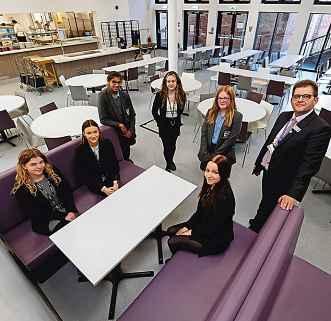
NGHS has been specialising in girls’ education since 1919 and the School combines tradition with new,dynamic learning experiences both in and outside of the classroom.

All students study abroad curriculum with two modernlanguages and three, separate, sciences from Year 7. The jewel in the School’scrown is its pastoral care.

Adedicated team of colleagues offer support when it is most needed, but the cultureisnot about being reactive. We areanACSEED Awardschool for pastoral careand alead school for the DFE
Personal Social, Health and Relationships
Education programme. All of these awards influence the education we provide to girls from Year 7-13.
Our Entrance Test each September is based purely around the work undertaken in Year 5Maths &English along with some wordand shape puzzles. It is very accessible to every girl and we offer
familiarisation materials online. Lastly, our Sixth Form has seen rapid growth in the past three years and we arecurrently welcoming applications from Year 11 girls at any local school. Visit www.nghs.org.uk for moreinformation.
Why not come and find out moreat our Open Morning? Youcan be assured a warm welcome.
7 Education | COMMUNITY
Whichtypeof school is rightfor your child?
These days thereare many different types of school that differ in how they arerun and funded as well as what they teach.

Gone arethe days of it being asimple choice between agrammar school and a comprehensive. Now thereare many types of schools, run and funded in different ways.
n State schools, also known as community schools, aremanaged and funded by the council. The local authority employs all of the staff, owns the land and buildings, and sets entrance criteria. Pupils follow the National Curriculum and the council provides support services that may be required for students, such as psychological and special educational needs. Students tend to be from arange of different backgrounds and have a mixtureofabilities.
n Almost two thirds of the country’s secondary schools areacademies. They arerun by agoverning body and are independent from the local council, with funding coming from central government. Academies control their own admissions
process and have morefreedom in the classroom as they can opt out of the National Curriculum.
They also have morepower over pay, length of the school day and term times. But this freedom means thereisnormally no support, management or oversight from the local authority
n Free schools arefundedbycentral government, but can be set up by groups of parents, teachers, charities, businesses, universities, trusts and religious or

voluntary groups. They wereintroduced as away to drive up standards through increased competition and hand power to parents and teachers to be able to create anew school if they wereunhappy with the state ones in their area. They areexempt from teaching the National Curriculum.
To receive funding they must teach English, mathematics and science and ‘make provision for the teaching of religious education’. They arestill subject to inspections by Ofsted. If you’reinvolved with founding afreeschool, your children areguaranteed places. Morethan 300 free schools have opened since 2010, teaching morethan 150,000 pupils across the country
n Private schools, also known as independent schools, charge annual fees instead of being funded by the Government. Many offer scholarships or bursaries based on assessment tests so it’sworth looking into whether this is an option. They can be offered to academically bright children or youngsters with aspecial talent, such as music or art.
8
Education| WHICHSCHOOL?
These schools arefreetoset their own curriculum, but must be registered with the Government and areinspected regularly They tend to offer high-quality facilities and class sizes arelikely to be smaller n Aboarding school provides education for pupils who live on the premises, as opposed to aday school. Thereare approximately 500 boarding schools across the UK. Children benefit from small classes and heightened interaction between students and their teachers as well as abroader range of extra-curricular activities.
n Grammar schools have been around since the 16th century,but the modern model was created as aresult of the Education Act 1944. It was all decided by an entrance exam –the 11-plus –which is still around today.Pupilswho passed went to grammar school, those who didn’t went to secondary modern. Today,there arestill around 160 grammar schools across England. Aban preventing new grammars from opening has been in place since 1998. These schools tend to have astrong focus on academic achievement and select pupils on the basis of ability through an entrance exam taken at the start of year 6.
n Faith schools can be different kinds of schools, such as community,freeschools or academies, but areassociated with a particular religion. They have to follow the National Curriculum except for religious
studies, wherethey arefreetoonly teach about their own religion. Anyone can apply for aplace.
n At Foundation schools, the land and buildings areowned by agoverning body, who arealsoresponsible for running the school, employing staffand providing support services. Pupils have to follow the National Curriculum.
n Voluntary-aided schools tend be mostly religious or faith schools. Just like foundation schools, the governing body employs staffand sets entrance criteria. This means it has asubstantial influence on how the school is run. School buildings and land areusuallyowned by acharity, often achurch. They follow the National Curriculum but may teach religious education according to their own faith.
n Voluntary-controlled schools areacross between community and voluntary-aided schools. The council employs staffand sets entrance criteria.
The difference is that school land and buildings areowned by acharity, often achurch, which also appoints some members of the governing body Voluntary-controlled schools arealso required to followthe National Curriculum.
n Co-operative trust schools, are becoming morepopular.Although funded by the council, they aresupported by acharitable foundation, which means they can set their own admission arrangements.
YOUNGSTERS FOR WORLDOFWORK
n University TechnicalColleges (UTCs) aregovernment-funded schoolswithaSTEMfocus. Throughtheir association with employersand universities, through project-based learning, andthrough afocus on technical subjects,UTCsbridgethe gap between theworld of education andthe world of work
Today, thereare 48 UTCs open acrossEngland,educating in theregion of 17,500students, andsupportedbymorethan400 employersand universities. They aimtoprepare studentsfor future careersinindustriessuchas engineering, healthcare,social care andscience.
They offerasecondary-age education forKey Stage4and Key Stage5withsomestartingearlier at KeyStage 3.
n Some schools, academiesand colleges specialise in vocational subjects andoffer bespoke curriculums to help studentsonthe waytotheir chosen careers
Some have aSTEMorhealthfocus, whileothersspecialise in thelikes of music, danceand performing arts andbroadcastmedia Students canchoose arange of subjects that arerelevanttotheir chosen future careerand cantake advantageofindustry-standard facilities
Thesespecialist schools, academiesand colleges work in partnershipwiththe industries so that studentsare able to applytheir learning to theworld of work
There arealsoStudioSchools, whichseektoaddress the growinggap between theskills andknowledge that youngpeople require to succeed, andthose that thetraditional educationsystem provides. They areusually small schoolsfor 300students; andwith year roundopeningand a9-5 workingday,theyfeelmorelikea workplacethanaschool.
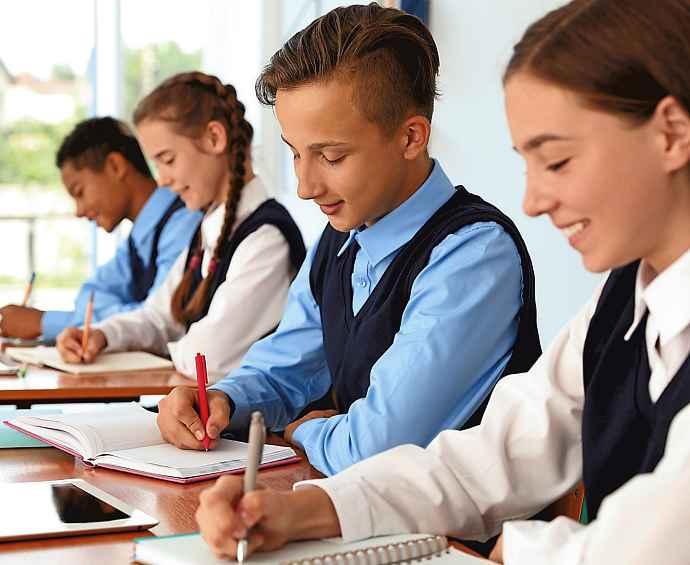
PREPARINGOUR
9 Education| WHICHSCHOOL?
Meetingthe costsofa privateschooleducation
Many parents will rule out fee-paying schools for their children because of the costs involved.
But most independent schools, often known as private schools, will offer financial assistance in the form of scholarships or bursaries for pupils.
Fee-paying schools tend to have small class sizes, excellent exam results and a good recordofentry to top universities.

Many devote asignificant amount of time to cultural activities, like art, drama and music, and most offer awide variety of sporting opportunities. They may also offer moreteachers per 100 pupils, pastoral careand provision forspecial needs.
Scholarship and bursary applicants will usually need to prove that they are very able and demonstrate the need for monetary support. It is estimated that almost athird of pupils educated in the private sector receives some form of financial assistance in the form of a scholarship or bursary.
Not only do schools want to attract the most talented students, but many arealso realising that having abroad social mix which reflects our society is incredibly important. This is why many have funding available for pupils whose
HOWTOGET HELP
n TheIndependent SchoolsCouncil website allows youtosearchby school feeassistanceand other requirements toosuchaslocation, agerange,day andboarding.
n Once youhavelocated aschool, contactthe admissionsoffice to find outwhat financialsupportis available
n If your childwillbeapplying for abursary,it’sworth checking what information, such as financial records, youwillneed to provide.
families areonlower incomes. According to the Independent Schools Council, the total value of means-tested bursaries and scholarships provided by schools has increased by over £195m since 2011, and currently stands at £455m per year
Scholarships arenot usually meanstested, but areinstead based on the child’sabilities in aparticular area. They areusually available to pupils who arevery strong either academically or in music, sport or art.
Some scholarships offer other benefits such as extra coaching or tuition,
additional trips, tours and mentoring for the duration of the pupil’stime at the school.
Bursaries aremeans-assessed on a financial basis and will requireaparent or guardian to complete adeclaration to establish whether the student meets the necessary criteria. This is usually re-assessed each year that the bursary is required. The school looks at what it is reasonable for you to affordand sets afee accordingly
Some schools areable to offer greater bursary provision than others and they can cover up to 100 per cent of fees.
They can also help with costs which arenot included in the normal school fee, such as uniform and school trips.
Thereare also charitable grant-making trusts who can help offer financial support to those who need it most.
They include The Royal National Children’sSpringBoardFoundation which provides bursaries to help disadvantaged children attend state or independent boarding schools.
Both scholarships and bursaries can be awarded to children at the same time.
n For moreinformation about the different types of support available, visit www.isc.co.uk
10
Education | FEE-PAYING SCHOOLS
Making sure schoolsoffer pupils aquality education

Ofsted is anamethat will already be familiar to most parents and it’sone you will continue to hear throughout your child’ssecondary school education.
Understanding the reasons for the checks and their impact, will give you peace of mind that your child’sschool is doing everything it can to ensurepupils receive ahigh quality education and may well help when you arechoosinga school in the first place.
All schools arerequired by law to be inspected, but how often it is visited will depend on how it has previously been judged. Afullinspection normally takes two days. When they arrive the inspectors will look at the school’sself-evaluation and analyse the pupils’ progress and attainment. They talk to the headteacher, governors, staffand pupilsand consider your views as aparent.
Inspectors spend most of their time observing lessons and looking at the quality of teaching in the school, and its impact on learning and progress.
They also look at the personal development, behaviour and welfareof pupils, the promotion of spiritual, moral, social and cultural development; and how well the school is led and managed.
Parents aregiven the option of providing their views.
After the visit, the lead inspector reports her or his judgement to the headteacher and governors. The inspectors’ findings arepublished in a report for the school, parents and wider community.This provides information about the effectiveness of the school’s work and contains recommendations about what it should do to improve.
This year,Ofsted has made changes to how school inspections arecarried out to reduce pressures on teachers and school leaders.
These include:
n Changes to how Ofsted inspects safeguarding
At the moment, even when schools are rated mostly as Good, if the school is rated as Inadequate on safeguarding, the school will receive an Inadequate rating overall. This is due to the importance of keeping children safe.
But, in very rarecases whereaschool fails because of safeguarding issues alone, Ofsted will now follow-up with a monitoring visit within three months to provide an opportunity for regrading. If the school has been able to resolve the safeguarding concerns, it is likely to see its overall grade improve. Ofsted will also make safeguarding requirements as clear as possible for schools and parents.
n Clarity around confidentiality policies
To reduce pressureonheadteachers, Ofsted will make it clear that they are allowed to sharethe provisional outcomes of inspections privately with colleagues and get support from them beforethe report is finalisedand shared with parents.
Ofsted reports will also talk about what the school needs to do, to reduce public focus on individuals,including headteachers.
n Support for schools between inspections
Ofsted is giving schools more information about the timing of their next inspection. Schools will still get one day’s notice, but they will have moreclarity about the year they arelikely to be inspected. This will be particularly helpful for schools that have been exempt from inspection for many years.
Outstanding schools areinspected less frequently than those with lower ratings. Outstanding schools that were last inspected beforeSeptember 2015 are already receiving face-to-face seminars, to support them when the time comes for a new inspection.
In asimilar waytoOfsted, the Independent Schools Inspectorate (ISI) reportsonindependent schools’ compliance with the DfE Education (Independent Schools Standards) Regulations.
The ISI inspects schools that belong to the Independent Schools Council (ISC), which has morethan1,200 members. But ISI and Ofsted use adifferent framework and criteria for judging school quality and they use different judgement words too.
ISI uses excellent, good, sound and unsatisfactory and Ofsted uses outstanding, good, requires improvement and inadequate.
Another difference is that ISI inspection teams largely consist of practising senior leaders currently working in ISC schools. ISI inspectors judge ISC schools against the higher standards of academic achievement and extra-curricular activities in the sector as awhole as well as against national norms.
1111
Education| OFSTED
What canyou do if you don’tget your firstchoice?
It’sinevitable that not everyone will get their first choice of secondary school. And while you will be keeping your fingers crossed that your child gets aspot, you should be prepared in case your wish doesn’tcome true.
Popular schools will be oversubscribed so it’simportant to remain realistic when waiting to hear if you’ve been successful. Also, it’svital to spend some time preparing yourself in case you want to appeal acouncil’s decision.
It may well be that you arehappy to accept aplace at aschool further down on your list if you believe it is still agood option for your child.
But if you feel the decision made is not reasonable or the procedurehas not been followed correctly then you arewithin your rights to appeal.
Your case will be heardbyan independent appeals panel and the system allows you to argue that thereare extra reasons why your child deserves a place at your top choice.

For anyone considering appealing the decision, hereissome moreinformation on the process:
n What arethe first steps? Parents are advised to accept the place you have been allocated regardless of whether you want it –this is asafety net to ensureyou have aplace for September if the appeal is unsuccessful. It can always be rejected at alater date if aspace becomes available, or if the appeal is upheld.
Then you should contact your preferred school to be put on awaiting list should the school have one. This may happen automatically but it is always worth checking that it has been done. This could remove the need for an appeal hearing if aplace is freed up
by other means, such as achange in circumstances for another pupil.
n How is an appeal lodged? Parents should lodge their intention to appeal with either the local authority or,ifit’sa free school or academy,the governing body.Details of who to contact, instructions for beginning the appeal process and the deadline will normally be provided with the place offer letter sent to you by the council. If morethan one school declines to admit your child, you areallowed to make separate appeals.
n What happens next? If you think thereare good reasons why your child should go to your preferred school, then you can present your case to an independent appeal panel. Focus on positive reasons why your child needs to attend that school as opposed to the allocated one. Don’tjust state why your child should not go to the allocated school. This might include the pupil’sspecifictalents if the chosen school has specialist science or language facilities.
It is recommended that parents take along evidence such as school reportsto backupthe argument.

12
Education| APPEALSPROCESS
n What happens at the hearing? Appeals must be heardwithin 40 school days of the deadline for making an appeal. Either the school or council will give you at least 10 school days’ notice of the hearing. The panel is usually made up of three to five members of the public –both with and without experience of the education system.
Local authorities recommend that you provide evidence of why your child should attend your first choice and why it would be bad for them to go to another school.
The school will also present its case for why it cannot take extra children and why it would be bad for the school if they had to.
Youwill be able to pose questions to their representatives so think about what you may want to ask in advance.
Members will listen to both cases and ask questions. During the hearing, the panel will also check that the school’s admission arrangements comply with the Schools Admissions Code. If the admissions criteria arelegal and were properly followed, the panel must decide if they werefollowedfairly and thoroughly
If they weren’tproperly followed or are
illegal, your appeal must be upheld. If your appeal has not already been upheld, the panel will decide if your reasons for your child to be admitted outweigh the school’s reasons for not admitting another child.
The result is sent by post within seven days and the decision is legally binding –it can only be overturned by acourt.

If successful, your child will be allocated aplace at their preferred school regardless of the class size.
n What happens if Ilose the appeal? If the appeal is unsuccessful you can still put your child’sname on the waiting list in the hope of aplace becoming available. Thereisplenty of time for circumstances to change by September as families may move out of the area meaning spaces can free up.
But understand that you can move both up and down awaiting list. If afamily was to move into the area and be closer to the school, they could go above you.
If you’reunhappy about the way the appeal process was carried out, you can complain to your Local Government Ombudsman. They can recommend anew appeal, but they can’treview or overturn the appeal panel’sdecision.
IMPORTANTTO KEEP AN OPEN MIND IF THINGS DON’TGO TO PLAN
It’s easier said than done,but it’s worth rememberingtokeep an open mindthroughoutthe application process.
If it doesn’tall go to plan,thenyou will need to remain positiveabout theschoolyourchildhas been allocatedbecause that will make it easier forthem.
Children pickuponyourmood andiftheyknowyou’reunhappy with theirschoolitcould affect howtheysettlein.
Concentrateonall of itspositive attributes. If youare stillfeeling uncertain, contactthe school to arrange avisit andspeak to staff to allayany fears. Touringthe site for the firsttimeorsecond,ifyou attended an open day, mayhelp you see it in anew light.
Also,rememberthatyouropinions andprioritiesmay well change andthe reasonswhy youruled the school outmay not matter so much in thefuture.
Youmay be worried abouthow youare goingtomanagewithyour childattendingaschoolfurther away but then find it easier than youwere expecting.
Maybeyou areconcerned about previousperformance figures, but then see test andexamresults start to improve.
It’s also very likely that afteryour sonordaughterstartsyou come to realiseitwas thebest fitfor them afterall.
13 Education| APPEALSPROCESS
CONSIDER POLICY ONANY SPECIAL EDUCATIONAL NEEDSOFACHILD
Allchildren have aright to be educated in mainstream school. Some mainstreamschools have specialunits attached to cater forchildren with particular types of need,suchasautismorvisual impairments.
Such units offerchildren the opportunity to spendsome time in amainstreamsetting, butalso to receivespecialist teaching
Your childwillneed an EHCP (an education,healthand care plan)to be considered foraplace in one of theseunits.
Thereare also maintained special schoolswhich arestate-run andfor children with more complexneeds that cannot be met in mainstream. Your childwillneed an EHCP to be considered for aplace
Non-maintained specialschools arerun privatelyorbycharities, some of whichare residential. Asmall number of children with an EHCP maygotoone of theseschools,where it hasbeen establishedthatnolocal school canmeettheir needs. In thecase of thistypeofschool, theonusis on theparents to provethatno otherschoolcan meet theirchild’s needs.
TheBritish Dyslexia Association recommends checking the school’s prospectusand asking for acopyofits SpecialEducational NeedsPolicy(SEN).Itsuggests that parents askifthere arespecial needsstaff with qualificationsin SpecificLearningDifficulty(SpLD) andwhattrainingdoall staff have Theorganisation also suggests findingout whetherthere is a choice of foreign languagesthat includesmoredyslexia-friendly languages.
It recommends that youand your childmeetthe staffwho will give specialist help and find out what subjects thesupportwillbe available in
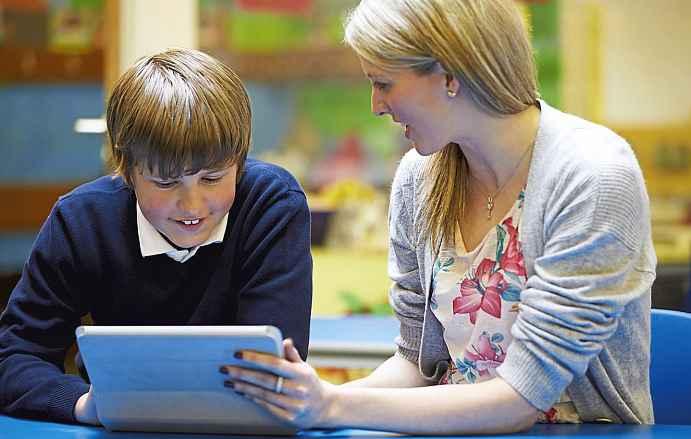
Getting afeelfor your newschool
Attending an open day is one of the best ways to let your son or daughter get afeel for anew school.
Many will offer guided tours and theremay also be the option to view a virtual tour on the school’swebsite. Open days areusually held in September and October,but most schools will allow parents and children book an appointment to visit if they can’tmake ascheduled event.
During an open day,you’ll be able to visit classrooms, and often pupils will show you around and talk to you about their school. Parents will probably be invited to hear atalk by the headteacher, the head of admissions or the head of the relevant section of the school.
Looking around the school will also enable you to discover morethan you would if you just read the prospectus. It’s an opportunity for you to speak to the staff, pupils, and the headteacher
Feel free to ask questions if you want to, particularly of pupils –whatdothey think of the teaching? do they enjoy life at the school?
Look at the work on display.Does it representabroad range of ability?
Aschool should value every child. Does the school offer extra-curricular activities –suchassports and clubs –so your child candevelop their interests? This also shows that the teachers are
motivated and enthusiastic. It will help you to really get asense of what it is like and how it operates on adaily basis.
Make sureyou have afew key questions to ask in order to get the most out of the visit –you might want to find out how many children areinaclass, or how the school deals with bullying.
Often current pupils will be drafted in to show prospective students around their classrooms and this will give agood insight into what life is like at the school. If they areenthusiastic and motivated then this agood sign that they arehappy
The events will also showcase what extra-curricular activities, such as sports and clubs, areonoffer
Remember to ask about transport –will your child have to make their own way there, or arethere buses? Find out about the lunch arrangements –are therehealthy school meals available and what do they cost? What arethe other options, such as taking apacked lunch?
Think about whether you find the open day chaotic, friendly,efficient or improvised? The organisation of the day’s events can give many clues to the general running of aschool.
Pay attention to the pupils themselves –dothey seem happy and motivated? Do they speak positively about their teachers and school life? Pupils arethe best ambassadors for any school.
14
Education| OPEN DAYS
Chance to getataste of secondaryschoollife
The transition from Year 6toYear 7can be alittle daunting for students and parents.
When Year 6children say goodbye to primary school, it marks the end of an era in their educational journey.Asit’ssuch abig change for them, pupils areoften given the opportunity to sample secondary school life beforethey begin Year 7.
Once you’ve accepted your child’s place next spring, the headteacher will often invite your son or daughter to one or moretaster days, normally beforethe end of the current school year
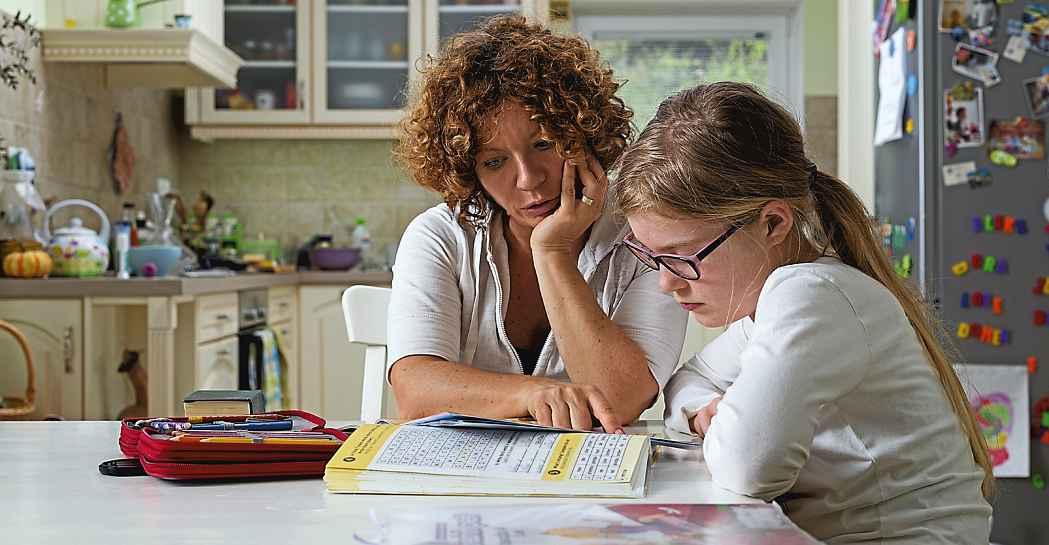
This day will give your child the chance to experience anormalday at the school as away of breaking them in and relieving anxiety over the summer holidays.
They may also get the chance to meet other children from different primary schools so they can start getting to know their new classmates. They will also try out new lessons such as science, PE, dance, music or French.
It will also give them the opportunity to find out wheretheir form room,canteen, lockers and toilets arelocated as it’slikely they will not remember this from when they attended the open day
They will alsobeable try out the lunch system, which may be different from the one they areusedtoatprimaryschool. And if you’renot certain if they arehaving school dinners or taking apacked lunch, sampling the food will enable them to help you make adecision.
The whole idea of ataster day is to make their first day easier,asthey will already have arough idea of the layout of the school, and make the transition from primary school to secondary school as smooth as possible.
It also gives children the opportunity to meet plenty of new faces including the headteacher,the head of year,their form tutor,subject teachers and other school staff.
They will also meet other children who areabout to start Year 7, and possibly others who arealready at the school such as buddies or mentors from higher years.
During the summer holidays, their new school may give them tasks to complete beforethe new term begins.
Some also provide activity ideas such as recipes to try that will be similar to what pupils will be learning in food technology or simple science experiments they can do
at home to give them ataster of what their lessons will be like in Year 7.
Many parents also choose to set their children learning tasks to keep their brains ticking over during the break from school and avoid what has become known as the ‘summer slide’.
This might be activities such as taking part in the Reading Agency’sSummer Reading Challenge, maths quizzes or fun games like Boggle that help to build language skills.
Some schools may also offer a summer school with sessions aimed at giving teachers the opportunity to learn about your child, what their strengths are and what support, if any,theymight need.
Every school will operate differently so it’sworth asking what they offer when you attend an open day or look for any information in their prospectus. Most of the time, taster days help to ease children’s nerves about starting secondary school.
However,ifyour child does have worries following their induction day,you can always phone their new school and ask for moreinformation on the area that is concerning them or you can organise further visits.
15
15 Education| TASTER DAYS
What subjects will your childbestudyingnow?
If your child’sschoolfollows the National Curriculum then therewill be compulsory subjects for them to be taught during the next five years.
They will vary depending on their age –Key Stage 3isfor years 7to9and Key Stage 4for years 10 and 11 when most pupils work towards national qualifications, usually GCSEs.
The majority of the National Curriculum was introduced in September 2014, with English and maths coming into force for all year groups from September 2016.
The exception is the science curriculum which came into force for all year 10 pupils in September 2016, and applied to year 11 pupils from September 2017.
All local-authority-maintained schools in England must teach these programmes of study.Although academies and private schools do not always have to follow this, thereare still some subjects that are compulsory for all students.
If your child’snew school is following the National Curriculum, then they will have lessons in set subjects including English, mathematics, science, history, geography,modernforeign languages,
physical education, citizenship and computing.
In English classes, pupils will be taught to develop an appreciation and love of reading as well as to understand increasingly challenging texts. The programme also includes writing accurately,fluently,effectively and at length for pleasureand information as well as speaking confidently and effectively using various methods such as presentations and debates.
During Key Stage 3, the aim is for pupils to become fluent in the fundamentals of mathematics, including varied and frequent practice with increasingly complex problems over time. They will also learntoreason mathematically by following aline of enquiry and solving problems by applying their mathematics to avariety of routine and non-routine situations.
History lessons may include the development of church, state and society in Medieval Britain 1066-1509, challenges for Britain, Europe and the wider world 1901 to the present day and the Holocaust.
While science teachers will work to
ensurepupils develop their scientific knowledge and conceptual understanding in biology,chemistry andphysics. They will also be taught nature, processes and methods of science through different types of enquiries that help them to answer questions about the world around them.

In geography sessions, they will work to extend their locational knowledge and deepen their spatial awareness of the world’scountries using maps of the world.
Pupils will also be taught to understand geographical similarities, differences and links between places through the study of human and physical geography as well as geographical skills and fieldwork.
From Key Stage 3, schools arealso required to provide lessons in religious education and sexeducation, but parents can sometimes choose whether children attend these classes.
Academies must teach abroad and balanced curriculum, which they can set themselves, but it must include English, mathematics and science. They must also teach religious education.
Schools will be able to provide details on their specific curriculum if you are unsure.
16 Education| SUBJECTS
Helping your childcope with theextra homework
The amount of homework your child has to do will almost certainly increase significantly when they start Year 7.


It’sadaily part of secondary school life and your child will be expected to complete it all and meet any deadlines they areset.
Homework helps to build on what your child is learning at school so plays an important role in their education.
It’sofcourse only natural that they may struggle to adjust to this increased workload at first.
But thereare plenty of ways you can help them settle into this new routine.
Encourage them to be organised by helping them to get used to checking their timetables and packing their bags the night before. It may help to draw up alist of items needed for each subject together so that they always have that to refer to.
As well as books and equipment, make surethey know when they will need their sports kit, whether for lessons or after-school activities. This will lead to less panicking and reduce the chances of anything being forgotten in the mornings –well, in theory anyway!
Children areusually given aplanner to help them manage their homework. They’ll be expected to use it every lesson to write down the details of their homework. Youwill probably be asked to sign their planner every week to confirm that they’ve
completed their homework
Take time to talk to your child about each day’shomework assignments and make surethat they arekeeping their planner up-to-date with what is required and when.
Youmay wish to provide them with wall space to hang aplanner at home, such as awhiteboard, to also write their assignments on too.
While you don’twanttonag them,
you don’twantthem falling behind either Teach them to prioritise their work so that they aredoing the tasks in the correct order according to the deadlines they have been set by their teachers.
Ensurethat they have somewhere quiet to complete their work without any tempting distractions like the television or their tablet.
Encourage them to speak up if they arestruggling, and if you have real concerns that they arefinding it difficult to cope persuade them to speak to their form or subject tutor.Ifthey areworried or unwilling then you may want to do it yourself.
If you think they aretaking longer to complete an assignment than they should, then wait to see if it’sjust aone-off–it may be that it’sone particular topic or task they’ve found morechallenging. But if it becomes aregular occurrence you may wish to raise it with the school.
Schools will have different policies concerning what happens if homework isn’thanded in, but it’susual for pupils to have to complete the work in detention. Reminding your child of this may be useful if they areshowing signs of wanting to ignoreanassignment, or put it offfor another day.But once they get into a routine, they’ll be fine.
17
17 Education| HOMEWORK
Howwillyouryoungster gettotheir newschool?
Once you know whereyourchild will be studying next September,you will need to consider how they aregoing to get to school.
Arethey going to walk, catch abus or be dropped offbycar?
If their new secondary is just around the corner then it should be within easy walking distance of your home. But if it’s further away it may mean your child will be catching the bus for the first time by themselves. Or,you mightfind it’seasier for you to drop them offinthe car on the way to work.
If your child will be walking to their new school, you will need to think about whether they will go alone, with friends, or whether someone will walk them. As the nights start drawing in, make surethey can be clearly seen when they’rewalking to and from school. It’sworth buying reflective high-visibility stickers to put on their school bags.
It may be that you want to accompany
your child at the start until they areused to the routeand you arehappy to let them go by themselves, or with their friends.
If the school is further away,your child may be automatically entitled to free transport up to the age of 16.
To qualify they need to attend the nearest suitable school, which must be further away than statutory walking distance of three miles for pupils aged eight or more. Statutory walking distance is measured by the shortest routeachild, accompanied if necessary,can walk with reasonable safety.Ifthereisnosuch route, the local authority must provide free transport no matter what distance you live from the school.
The local education authority or governing body will either provide its own transport, hirecoaches, or provide free bus or train passes for use on public transport. In some cases, atravellingallowance may be paid to pupils who provide their own transport, for example, acycle allowance.
Pupils who do not qualify for free transport may be allowed to travel on spareseats on school buses for afee.
Your local council will be able to tell you about what transport options areavailable in your area and what support is on offer
If your child will be taking public transport, it may help to calm any nerves by practising their route beforethe start of term. This will help them to get used to getting out of the door,and to thebus stop, on time.

Whether it’spublictransport or abus provided by the council or school, it’s worth having aPlanBincase your child misses their lift.
Make suretheyknow what they need to do if this happens, whether they should call you or another relative, or get ataxi.
If it’s the latter,make surethatthey have ‘emergency money’ to pay for it and that they know what it’sfor and that it should be kept it in asecure place in their bag.
18
Education| TRANSPORT
Kittingyourchild outfor thenextstage of theirlife
Thereisnogetting around it. Kitting out children for their first year of secondary school can be expensive, but thereare ways to keep the costs down.
According to research conducted by The Children’sSociety,which surveyed 2,000 parents across the UK in May,on average they arespending £422 per year on uniforms and £287 for primary school children. So how can you save money on school uniforms?
n Buy secondhand –Sometimes there’s away to buy secondhand uniforms at the school through the Parent Teacher Association, Matthew Easter,chairman of The Schoolwear Association, says.
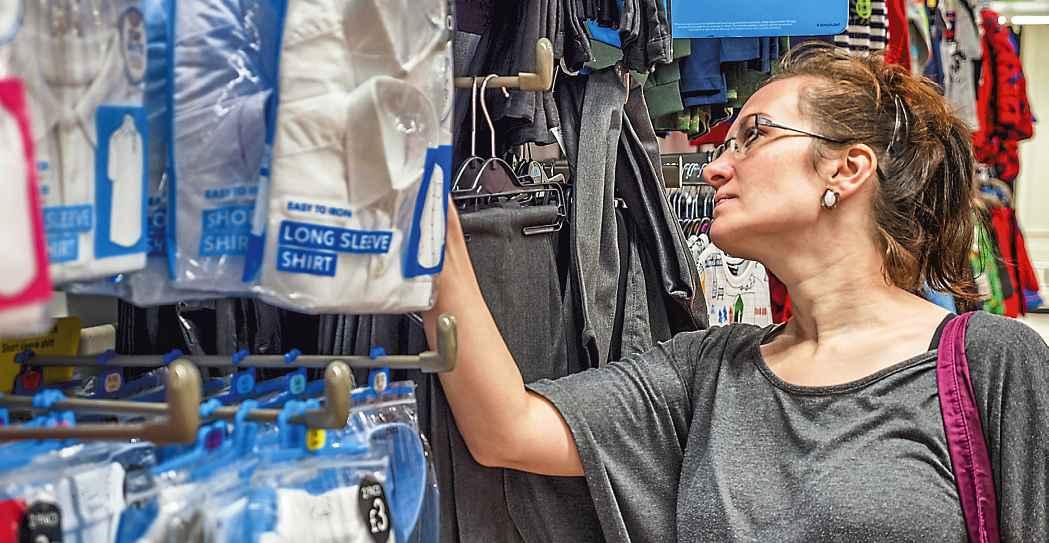
“Have alook on local Facebook sites or sometimes schools have secondhand sales themselves,” advises teacher, mother and money saving expert Sophie Bradbury.“Sometimes you can get uniform that’sbarely been wornas someone’sgrown out of it too quickly.If you know anyone with children in their older years, ask them. Chances are they’ve still got some old jumpers or polo shirts hanging around.
“Also check out your local charity shops and make suretoask if they have
any uniform out the back. Charity shops don’tput everything out straight away,so it’salways worth an ask. [You can also try] car boot sales. Ialways see old uniforms going for pennies.”
It’sgreat when siblings attend the same school too, because you can pass down their old items.
n Buy good quality uniform that lasts –It’s tempting to buy cheap school uniforms, but Easter suggests it’sbetter to focus on quality over quantity
Matthew is aparent of two girls aged seven and 10, and understands the strain it can put on families.
“School uniforms areunique pieces of clothing, because pupils wear it for at least 196 days every year.Ithardly changes too and doesn’tget lost as much as parents think –it’sonlyasmall proportion. So why not invest in quality branded clothing that will last your child for afew years?
“Itmeans you can focus on purchasing the quality staple branded items, including ablazer,jumper –depending on the school –and tie from recommended retailers and then get skirts, trousers, white shirts, shoes and anything else required from independent retailers or
supermarkets on the high street.”
In reality,Matthew suggests parents end up spending moreinashorter space of time buying lower quality uniforms, because they might need to be replaced.
n Buy it big so you get moreout of it –Uniforms tend not to be aone-timecost: you’ll have to buy replacements whenever you child has agrowth spurt and the garments no longer fit.
An easy hack to minimising the amount of new uniforms you have to buy? Buy the items abit toobig, giving your child time to grow into it.
n Recycle or upcycle –Clothing is one of the world’smost polluting industries, so don’tthrow your old uniform away
Many schools, parents groups and local charities will run uniform swap shops but in many cases if you areinneed of uniform, you can turnupwithout having anything to swap.
If they arenolongergood enough to wear again, you can always donate them to organisations that upcycle and recycle school uniforms. An example is the Re:Form scheme (run by Trutex), which sells pre-owned uniforms at reduced prices.
19
19 Education| UNIFORM
Chance to learna new skillordeveloptalents
From playing in the band to being part of asports team, thereismoreto school life than just what goes on in the classroom.

In addition to their lessons, your son or daughter will have the chance to join in awhole host of extra-curricular activities. Every school will offer apacked programme to ensurethereissomething to suit all interests.
Maybe your child will already have afavourite sport or other interest they want to continue or they might choose to try something new.Your child will no doubt have plenty of opportunities and it is something that should always be encouraged.
Joining after-school clubs can make it easier for them to settle in to their new surroundings and make friends.
Children, especially those that are shy,may be concerned about how they aregoing to get to know their new classmates. They will be moving from aschool wherethey knew everybody’s name and now they could be in aclass with children they have never seen before. Some children make friends easily,while others find it moredifficult and will need some encouragement.
It is also agreat chance for your child to develop an existing interest or start a new hobby,which could turninto alifelong passion.
If your child doesn’thave aparticular interest already,encourage them to try something new and hopefully they will end up enjoying it and will want to continue. But if it turns out it’snot for them, they can always try something else. Make surethey don’tjust give up after the first attempt. Once your child has found an activity that they enjoy,succeeding in that activity could ultimately build their confidence and self-esteem.
As well as all kinds of sports, they could get involved in special-interest clubs such as science or computing, music tuition and modernforeign languages, as well as homework clubs. Popular extracurricular activities include book groups, creative writing, and performing arts such as drama or choir groups.
Another benefit of extra-curricular activities is that they allow your children to make acontribution to their school or community,helping to preparethem for later in life. Activities can also teach them time management.
They also present opportunities for your child to set goals for themselves such as passing amusic exam, or being picked for the lead role in aplay.Itwillgivethem something to work towards and help them to continue developing their skills.
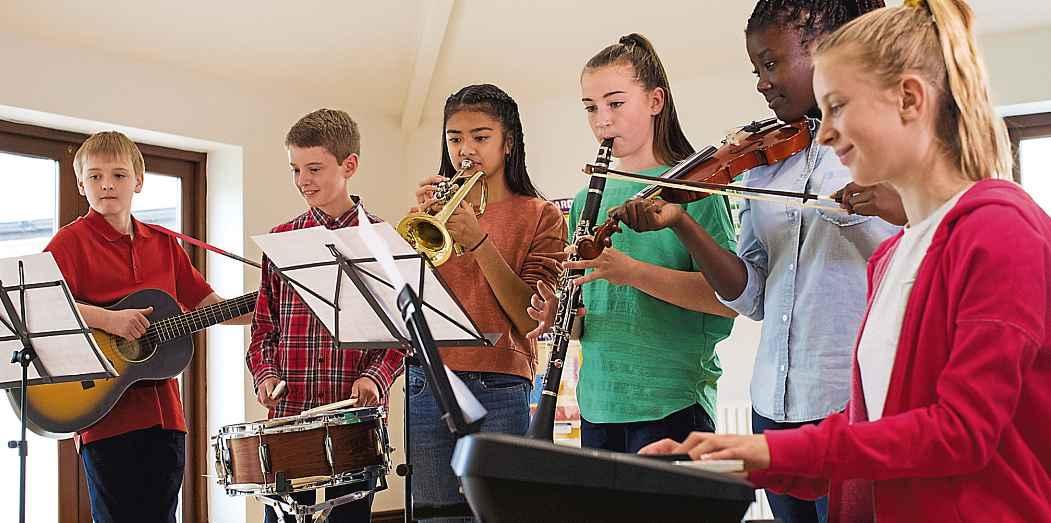
Sports teams, clubs and activities, like dancing and music, all requirechildren to work together towards acommon goal. This will teach them the benefit of teamwork. By joining an after-school club, they will also have the chance to mix with children of other age groups and outside their own circle of friends.
When you attend an open day,make suretofind out what is on offer
20
Education| AFTER-SCHOOL CLUBS
Whynot getinvolvedwith your child’snew school?
When your child starts Year 7, you may decide it’stime to play amoreactive role in their school.
Most schools will have aPTA,Parents Association or Friends of… group, which can be agreat way of getting to know staffand other families while making areal contribution to the quality of school life for all.
Fundraising remains amajor part of a PTAorsimilar organisation’sactivities and directly contributes to improvements from new books and computers to covering the cost of field trips.
But they can also help to improve the school’slinks with the wider community which can bring many benefits.
Parentkind, which is the largest network of PTAfundraisers in the UK, says: “PTAmembers also provide awilling workforce for the school when extra hands areneeded, hold social events to bond the school community,run extra-curricular clubs for children and adults, and support parents through times of change.”
Thereare said to be many benefits from joining aPTA –both for you and your son and daughter

Firstly,becoming amember makes it easy to get to know people at the school, from the headteacher and teachers, to other parents. Events run by the PTA, from adisco for pupils to the annual summer fete, areusually fun and are great for bringing the school together as a community.Teachers, parents and pupils alike get stuck in and enjoy themselves.
According to Parentkind, being part of the PTAhelps parents to understand how things in the school work.

If the PTAiswell supported by the teachers, you will realise how much they value the support it brings to the school.
There’salot of evidence to suggest that when parents areengaged in a
school, achild’s attainment is improved because being involved in school shows that you think it’simportant.
Parentkind says that it’snot uncommon for parents to feel unsure about getting involved with the PTA, there’s an assumption that you will be expected to commit large chunks of time to the school, but that’snot thecase.
Any help you can provide is usually very much appreciated, and in returnyou will receive ahugesense of satisfaction and most likely anew group of friends.
Therecould be other ways for you to get involved in your child’sschool, so it’s worth asking about any schemes they run.
Some schools recruit parent helpers to help children with reading or maths, sharetheir skills and interests and provide careers advice.
They may also be involved in running after-school clubs or wider fundraising such as grant applications.
n For moreinformationabout Parentkind, which provides specialist fundraising support and advice to parent volunteers and PTAs, go to parentkind. org.uk
21
21 Education| PTA
Workingtowards theend goal –qualifications
In abid to ensurepupilsleave school better prepared for work or further study,GCSEand A-level qualifications have been overhauled in recent years.
Although thereisstill some time beforeyour child will be ready to consider their options, it helps to understand what they will face in the future.
For the first time in 2017, students didn’tjust receive their grades subjects in the usual A*-G format –inmathematics, English language and English literature they weregraded on ascale between 9 and 1instead.
These werefollowedbyafurther 20 subjects including history,geography, double science, PE and art and design with the remaining subjects getting the new grades after that.
A9isthe top grade, while 1isthe lowest pass possible, with an outright fail still graded as aU.
The top grades of A**, A* and Aare
broadly equivalent to anew grades of 9, 8 and 7, while pass marks of Band Chave been replaced by grades 4, 5and 6. At the lower end of the scale, grades D, E, Fand Gwill be graded 3, 2and 1.
The Department for Education (DfE) says its new GCSEs aredesigned to match the standards set by the strongest performing education systems in the world.


While exam regulator Ofqual said the 1to9 scale would help them to better differentiate between the highest performing pupils and distinguish clearly between the new and old exams.
Meanwhile changes werealso introduced to the A-level system. The reforms saw aswitch to assessment being mainly by exam and have also led to some subjects such as applied science and creative writing being scrapped.
New style study programmes were introduced for some subjects in 2015 and since 2017 all courses have followed the same system.
Courses arenolonger being divided into modules and all exams take place in the summer.The changes also mean that students have less coursework and fewer practical assessments.
TLevels, which areequivalent to three A-levels, have been introduced in recent years. The two-year courses were
22
Education| QUALIFICATIONS
developed in collaboration with employers and businesses so that the content meets the needs of industry and prepares students for work, further training or study.
TLevels offer students amixture of classroom learning and ‘on-the-job’ experience during an industry placement. Subjects include in design, surveying and planning for construction; digital production, design and development; education and childcare; finance; hair, beauty and aesthetics; animal careand management; media, broadcast and production; and healthcarescience.
Apprenticeships arealso becoming an increasingly popular alternative to A-levels, with students looking to combine real work with academic study
It is also an opportunity for 16-yearolds to earnand learnatthe same time as getting afootinthe door of their chosen industry
Apprentices split their time between the workplace and atraining centreor college. They areexpected to work for at least 30 hours aweek and aretreated like apermanent employee, receiving asalary, holidays and other benefits.
Some programmes arestructured so that an apprentice will spend four days in aweek at work, and one day at college.
Other employers will retain an apprentice for weeks or months at atime, and then send them to college for an extended study period
Anyone interested in an intermediate, or level 2apprenticeship will usually require at least five GCSE passes. But thereare different entry requirements depending on the sector and job.
At any one time thereare up to 28,000 apprenticeship vacancies available online in avariety of careers and industries across England –fromaccounting and animal caretoplumbing and printing.
Other post-16 options, include Higher National Certificates (HNCs) and Higher National Diplomas (HNDs).
They areagreat way to preparefor acareer in aspecific industry and lead directly to the workplace.
Both qualifications areprovided by further and higher education colleges. HNCs take about one year to complete full-time and two years part-time. It is equivalent to the first year of adegree. HNDs take two years full-time and can also be taken part-time, which takes longer.This is the equivalent to two years of adegree. Both HNCs and HNDs can be very practical qualifications, so they do not just involve theory
CHOOSING THE RIGHTCOURSEFOR YOUR IDEALCAREER

When it comestoA-levels anda degree beyond that,there area wide range of subjects to choose from.
If your childwants to study certain subjects at university,oriftheyhave acareerareainmind, it’s important to checkiftheyhaveany particular A-levelentry requirements.
They maynot yetknowwhatthey want to do afterA-levels,sohere’sa quickguide to making choices.
Themost importantcriteriafor a student choosing A-levels subjects are:
n Arethere anyparticularsubjects andgradesyou mayneed?–Ifyou have aparticularcareer, jobor furtherstudy in mindyou mayneed to choose certain A-levels in orderto meetentry requirements.
n Abilityand enjoyment–Think aboutthe subjects you aregood at andlike. If youenjoywhatyou’re studyingyou arelikelytobemore motivated.Ifyou have abilityinyour chosen subjects youcan increase your chancesofsuccess
n Newsubjects–Schools and colleges mayoffer A-levels in subjects that youhavenot studied before –it’sreallyworth taking some time to find out what’s involvedin newsubjects –talktoyourteachers andtostaff at open days andopen evenings.
n Subject combinations–
Some subjects covercommon ground –suchasgeography and environmentalstudies,ormedia studiesand film studies. Youneedto checkthey’re not toosimilar as some colleges anduniversitiesmay not accept thecombination forentry to higher levelcourses
Some subject combinations are complimentaryand fitwelltogether –suchasdoing physics as well as mathematicsoranotherscience
Some schoolsand colleges mayhave restrictionsonsubject combinations, so checkyouroptions
23 Education| QUALIFICATIONS
EXPERT TIPS FORA HEALTHIERLUNCH
TheNHS’s Better Health campaign hasprovidedthese top tips for healthylunches.
n Freeze for variety–Keepasmall selectionofdifferenttypes of bread in thefreezersoyou have avariety of options –likebagels, pittas and wraps, granary,wholemeal and multigrain.
n DIYlunches –Wraps andpots of fillings canbemoreexcitingfor kids when they gettomakethem. Dippingfoods arealsofun anda nice change from asandwicheach day.
n Cutbackonfat –Picklower-fat fillings, like lean meats(including chicken or turkey), fish (suchas tuna or salmon), lower-fatspread, reduced-fat creamcheeseand reduced-fat hard cheese. And trytoavoid usingmayonnaisein sandwiches.
n Mixyourslices–Ifyourchild does notlikewholegrain,try making asandwichfromone sliceofwhite breadand one sliceofbrownbread.
n Always addveg –Cherry tomatoes,orsticksofcarrot, cucumber,celeryand peppersall counttowards their5A Day. Adding asmall potofreduced-fat hummus or otherdipsmay help with getting kids to eatvegetables.
n Cheesydoes it… Cheese can be high in fatand salt,sochoose stronger-tastingones–and useless of it –ortry reduced-fat varieties.
n Cutdownoncrisps –Ifyourchild really likes theircrisps tryreducing thenumber of timesyou include them in theirlunchbox, andswapfor homemade plain popcorn or plain rice cakes instead.
n Addbite-sizedfruit –Try chopped apple, peeledsatsuma segments, strawberries,blueberries,halved grapesormelon slices.Add a squeezeoflemon juicetostopit from goingbrown.
n Gettheminvolved–Get your kids involved in choosingwhatgoes in theirlunchbox. They aremorelikely to eatitiftheyhelped make it.
Fuel theirstudies with adecentmeal
Your child will need agood meal in the middle of the day to help them process all the new things they arelearning.
Andthe choice is either they take in packed lunch from home or they choose ahot dinner in the school canteen. Both have their pros and cons.
Sending your son and daughter to school every day with afulllunch box gives you control of the food they eat. But it’sanother job to do each morning when time is already precious and it can be hard to keep the options interesting for your child.
School dinners mean you know your child is getting ahot meal at lunchtime, but if you areleaving them to choose from the canteen menu you can’tbesurethey will select something nutritious.
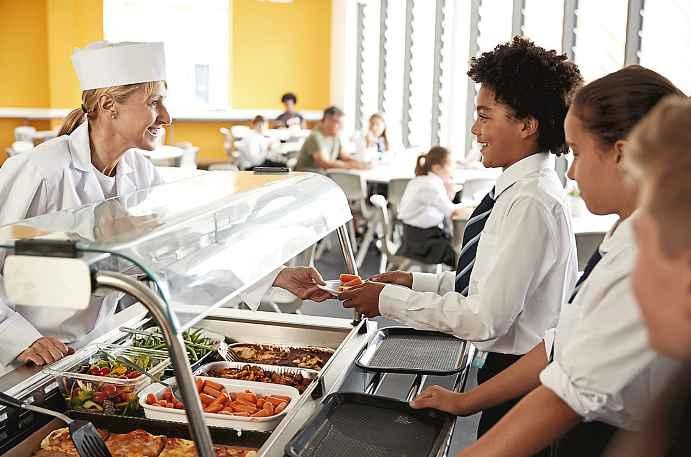
For some of you the decision may be influenced by whether your child is entitled to free school meals. This is normally the case if you areinreceipt of benefits such as Income Support, Child TaxCreditand Universal Credit. The local council can tell you if your child is able to get free school meals.
In recent years, schools have put a lot of effort into revamping their dinners, especially after celebrity chef Jamie Oliver highlighted the issue in 2005. He started his Feed Me Better campaign because he was appalled by the junk food being served at many schools in England. It led
to new guidelines for school dinners and the Government investing £280 million on improving menus for youngsters.
Now all schools have healthy eating policies, which arereflected in the menus on offer for pupils. They also cater for different diets and allergies as well as for different religious faiths and beliefs.
Some have cashless systems where children use acardoreven their fingerprint to buy their food each day after parents have paid money into their account. The benefits of this arethatitmeans children do not have to carry cash on them each day.Italso allows parents to monitor what their child is eating because they will know what has been purchased.
Many parents still choose to send their children to school with apacked lunch, especially if they prefer to eat ahot meal together as afamily in the evening.
Some opt for packed lunches because it means they know exactly what their child is eating each day and they don’thave to leave it up to them to make healthy choices.
Thereare plenty of ideas online if you’renot sure what to give your child for lunch and suggestions to shake things up if they get tired of sandwiches each day
Some schools also offer breakfast clubs to ensurepupils start the day well and have the energy they need to make the most of their lessons.
24
Education| FOOD
Recognisethe signsyour childisbeing bullied
Knowing or suspecting that your child is being bullied can be very upsetting, but there’slots you can do to help tackle the problem.
Although you hope it never happens to your son or daughter,thereisachance it might so it helps to be prepared to recognise the signs so you can help.
The good news is that most schools arevery pro-active when it comes to preventing and dealing with this problem.
Bullying can take many shapes and forms and sadly technology and social media have also made it easier for those who want to cause trouble for others.
n Cyber bullying –usually carried out online, via smartphones and tablets –isbecoming increasingly common and can cause the same emotional and physiological stress as the conventional kind.
However,one of the biggest challenges posed is that it can be harder to detect because it only takes place via phones and other electronic devices.
The charity Family Lives recommends parents make note of everything that happened, including who was involved, when it occurred and who witnessed it, beforeapproaching the school.
Cyber bullying, unfortunately,can be harder to spot, and with mobile technology being so freely available it can seem never-ending as the taunting can continue at any time of the day or night.
It can also be made worse if taunts aremade via social networking sites and messaging apps because anything posted can often be seen by lots of people and easily shared.
n Make an appointment with the class teacher or head of year –they will want to see you if you have concerns. All state schools arerequired to have an antibullying policy by law.Work together with the school and make it clear you are seeking their help in finding asolution.
n Avoid accusing the school –remember that teachers areusually the last to find out that bullying is happening.
n As difficult as it may be, try to be patient –allow the school time to deal with the problem but stay in touch with them and arrange afollow-up meeting to see how the situation is being resolved.
If things don’timprove, keep abullying diary and write down every incident as soon as possible after it happens making suretotell the school each time.
n Look for changes in your child’s behaviour –theymay be less talkative and appear secretive. They may suddenly be unwilling to go out with friends or stop doing an activity they have always enjoyed.
Once they have confirmed your suspicions –keep alog of what’s happened, get screen grabs of texts or messages on social media and then go to the school for help.
What to do if your child has bullied someone:
No parent wants to find out that their child is bullying another pupil and it’slikely that you will feel angry,disappointed or any number of other strong emotions.

The NSPCC recommends that you should explain that what they’redoing is unacceptable.
Children and young people don’t always realise what they’redoing is bullying, or understand how much their actions have hurt someone.
Childline has lots of great advice specially designed for childen and young people.
The NSPCC says it’simportant to help them realise how what they’ve done will have affected the other person. Youcould ask them how they think the other child is feeling, and to remember how they’ve felt when someone has said or done something unkind to them.
Explain what you’regoing to do next, such as telling their school, and what you expect your child to do now
Ask them whether they have any questions about why their actions need to change.
2525 Education| BULLYING
Explore theworld of work andfuturecareeroptions
One of the secondary school milestones your child can look forward to is their first work experience placement, usually in Year 10.
This is achance for your son or daughter to get out and explorethe world of work and gain some invaluable insight which could inspiretheir futurecareer choice.
Their teachers will no doubt explain moreabout the process when the time comes, but it doesn’thurt to have an early understanding of what they will be required to do.
And some early planning may also help to ensurethey secureaplacement in their preferred industry,especiallyifit’sone that’s goingtobepopular
If you know wherethey want to work or what sector they would like to work in, then you can start making enquiries ahead of time.
For pupils who don’tknow what career they might like in the future, experts recommend they think about what they arepassionate about as that should spark some ideas.
If they like animals then they may want
to look into options that will enable them to work closer with them.
If they enjoy looking after younger siblings or babysitting then childcareor teaching might be agoodfit.
Nearer the time, pupils should speak to their teachers or careers advisor at school as they will be able to help with organising the placement and with speaking to the correct people as well as dealing with the logistics.
Work experience is said to offer many benefits to teenagers such as boosting their confidence and inspiring their future career goals.
Placements will also help them to develop skills such as communicating with others, working in ateam and problem solving, which will be beneficial to their studies.
If your child wants to enter the world of work after leaving school, then work experience can also be aroute to landing ajob.
Impressing an employer during awork experience placement could mean they think of your child when they arelooking to recruit in the future.
Many companies will offer opportunities to people who areknown to them or they know already have an insight into the business.
If your child plans to go to university or start an apprenticeship, then having completed work experience in asector related to their course or preferred place of work will show that they have enthusiasm for that industry and it also shows that they have made an effort to get abetter understanding of what the job involves and what is required from them

Competitionfor university places in areas such as medicine or veterinary practice can be tough, so having already secured work experience can help to make their UCAS application stand out.
Although it’susually atwo-week work experience placement in Year 10, many companies will allow students to return during school holidays so they can build on their skills and learning.
For many employers, nothing is more impressive than acandidate with relevant workexperience, and having this on their CV can put them acut above other applicants.
26 Education| WORK EXPERIENCE
TelfordLangleySchool
The TelfordLangley School will be holding their open evening on October 5. Current pupils and staffwill be on hand to welcome prospective pupils and their parents.

Judged good in all areas by Ofsted in 2019, The TelfordLangley School is an exciting and vibrant school.


The school is part of the ‘Community Academies Trust’, which comes with astrong track recordfor ensuring that the schools within their group provide the highest quality education, providing the support necessary to drive school improvement.
The TelfordLangley School boasts state-of-the-art facilities for sport, the arts, science, technology and ICT

Students enjoy awide range of opportunities in an environment where they aregiven every chance to ‘let their light shine’.
Thereare significant opportunities for


students outside the planned curriculum, with an extensive programme of extracurricular activities.
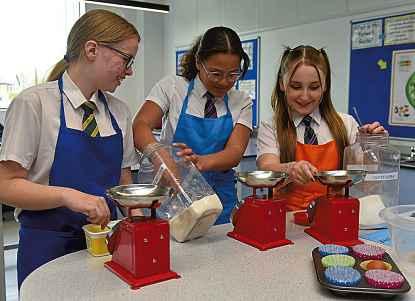
The school has been recognised by the ‘Renaissance’ organisation which works with schools across the country to develop student reading and comprehension.
The TelfordLangley School is one of only ahandful of schools out of 6,000 who

have achieved ‘Master School’ status for their excellent work in this area.






Ensuring excellence is the theme in all aspects of school life.
Afocus on excellent standards of academic achievement, along with astrong emphasis on outstanding behaviour is the norm.
The school has areputation for strong pastoral caresystems; providing guidance and support for all students.

The pastoral system builds on this to foster excellent working relationships and create ahappy and well-disciplined atmosphere.
The evening will run between 5.30pm and 8pm and visitors arewelcome at any point throughout the evening.
Therewillbepresentations from the headteacher at 6pm and 7pm.
Tours with the headteacher during the school day can also be arranged by phoning the school.
Visit our school websitefor further details: www.telfordlangleyschool.co.uk efor ther OPENEVENING Thursday5th October 2023 Presentations with the headteacher at 6pm and 7pm Please phone or book online (bookingline opensmid-September) THETELFORDLANGLEYSCHOOL Pleasecall01952386700 The TelfordLangley Schoolnamed for “bestpractice” in The Parlimentary Review SCHOOLHELPS STUDENTS TO LETTHEIR LIGHTSHINE BY EQUIPPING THEM WITH THE SKILLS ANDKNOWLEDGE TO BE HAPPY, SUCCESSFUL ANDPRODUCTIVECITIZENS
27 Education | COMMUNITY
Idsall School
IDSALL HASASTRONGHISTORY OF SUCCESSINSPORT AS WELL AS MANYOTHER CAREER PATHWAYS,DEDICATED TO ENSURING EVERYOPPORTUNITY IS EXPLORED

Idsall School is alarge secondary in Shropshire. It continues to be oversubscribed and very popular.
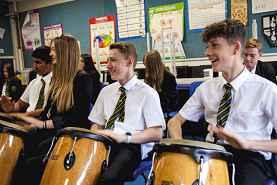
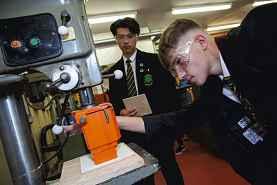




It has aflourishing Sixth Form that offers afullsuite of academic and vocational qualifications.
Despite achallenging year, examinations results weretheir strongest yet in 2022, at GCSE and A-Level, with ahigh number of students going to university,aswell as entering apprenticeships. The school celebrates many successes alongside strong exam results and has been working hardto ensurewesupport thewhole child as they enjoy their time at school.
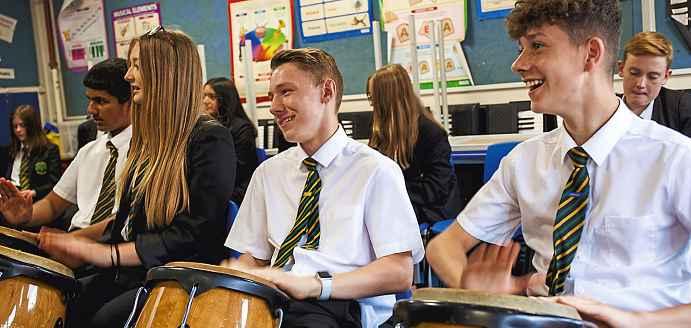
This year Idsall joins afamily of schools in alarge Trust with asuccessful proven track record. Idsall is on its journey, sharing the Trust’svalues: Excellence, Integrity,Empathy,Creativity and Equality, so it maintains positive outcomes, and builds on them, ensuring all students are ready and leading the way in afuturethat
is full of opportunities. Idsall has astrong history of success in sport as well as many other successful career pathways, dedicated to ensuring every opportunity is explored.
We would love you to come and see for yourself at our Year 6openevening on 28th September or open morning on 29th September.Itisawarm and friendly
school, driven to be successful. Without doubt you will not be disappointed.
See the website to find out morewww idsallschool.org
For students looking for agreat Sixth Form experience, come along to our Sixth Form open evening and careers fair on 24th October.See our website to find out morewww.idsallschool.org/sixth-form

Seeour prospectus
28 Education| COMMUNITY
BRIDGNORTH ENDOWEDPRIDESITSELFONBEING AVIBRANT,FORWARD-THINKING CO-EDUCATIONAL SECONDARY SCHOOLFOR 600PUPILSAGEDBETWEEN 11 AND16
Bridgnorth Endowed continues to go from strength to strength, with a high demand for places, an excellent reputation across the region and an exciting new chapter ahead.
The school is all set to become part of The 3-18 Education Trust, who come with aproven track recordfor providing an exceptional education experience for everyone in its care.
Headteacher,MrPenn, said: “We arevery much looking forwardtojoining alarger family of schools, wherewecan shareideas,innovation and best practice, while retaining our unique identity,ethos and values.
“This move represents an investment in the futureofour students and will offer araft of benefits for the entireschool community.”
Previously the town’sgrammar, Bridgnorth Endowed has along and rich history that dates all the way back to 1503. Today,itisavibrant, forward-
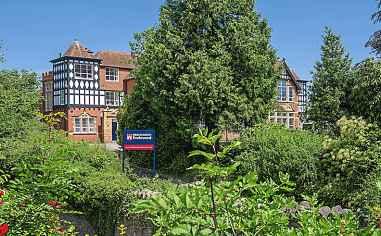
thinking co-educational secondary school for 600 pupils aged between 11 and 16. The school benefits from 30 acres of beautiful grounds with sports pitches and an historic Old Hall, its own on-site leisure centre, and afantastic location in the heart of Bridgnorth.

Its mission is to ensurethat every student achieves their personal best by providing an education that challenges them intellectually and offers them awide range of extra-curricular opportunities to help them thrive during their time there.
Being asmaller school is certainly a benefit as Bridgnorth Endowed enjoys areal sense of community,where staff areable to get to know each and every student and wellbeing is prioritised above all else.
Pastoral careisexceptional and students feel secureand comfortable in an atmospherethat is calm, caring and built on mutual respect, both inside and outside the classroom.
Mr Penn concludes: “Here, at Bridgnorth Endowed, we place great value on our students’ pastoral and academic development and our aim is to create a genuine and positive culturethat can be felt and that resonates throughout each day,and in every part of the school.”
The Year 7Open Evening will take place on Wednesday 4th October with school tours also available in September and October
Visit



OPEN EVENING SCHOOL TOURS AVAILABLE TOO www.bridgnorthendowed.co.uk | n 01746 762103 A World of Opportunity on your doorstep 6PM — 9PM Wednesday 4th October 2023
29 Education | COMMUNITY
Bridgnorth Endowed
www.bridgnorthendowed.co.uk to find out more.
ASCHOOL THAT SUPPORTS
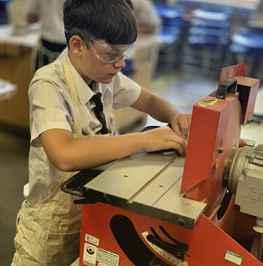
HereatBurtonBorough School, we pride ourselves on being an inclusive school; aschool which supports children with their social and emotional needs, whilst also developing the resilience required to face the challenges presented to our children as they grow up in the modernworld.



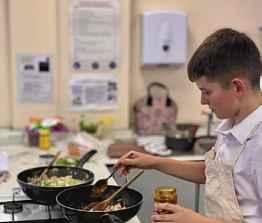
Putting an arm around our students whilst having high standards and expectancies is incredibly important.
The key is for our children to always challenge themselves in every aspect of school life, to remain determined to succeed and ambitious to grow into a strong and proud young adults prepared for the next stage of their life, no matter whereitmight take them.
Starting secondary school is an exciting time and we know your children will enjoy it. At BBS we understand that the changes from primary school to alarge secondary school can seem daunting at


first and as aresult we aremoving to a year group system in September


By retaining aset team of support in Year 7, your child will have acoregroup of staffthat will work with them, and only them, every day.These staffwillbe available all day,including at social times and in the transition between lessons to support and carefor your child, whilst they areatschool. In afast paced, ever-
changing 21st century,weare living in an age of information whereweseemingly have the answers to everything available at the click of abutton.




It is thereforeincreasingly important that we nurtureour students to become confident lifelong learners, who are unafraid to voice their own opinions and debate them in an intellectual, considered and structured manner.
Our extra-curricular provision is fantastic, especially in the arts, whereour wind bands have won awards for over 15 years and arerecognised nationally Our students also have the opportunity to take part in exciting trips, visits and tours, giving them the opportunity to learnmore about cultural differences and skills which will develop them for futureendeavours.
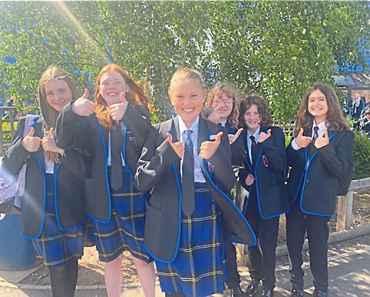

The work we carry out on mental health and wellbeing has gained national recognition, with BBS retaining the Carnegie CentreofExcellence Mental Health Gold Award.
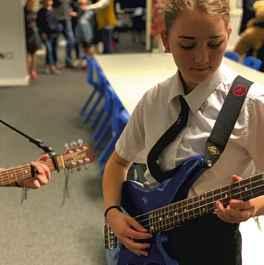
Tel: 01952386500 Email:burton.borough@taw.org.uk @BurtonBorough @BurtonBorough OPENEVENING Wednesday 4th October2023 5.30pm to 8pm OPEN MORNINGS Thursday5th &Friday 6th October2023 9.30am to 11.30am Discover your true potential… We areAmbitious, Proud &Caring
PUPILS’SOCIALAND EMOTIONAL NEEDSWHILE DEVELOPING RESILIENCE,DETERMINATION TO SUCCEEDAND AMBITION
Burton
30 Education| COMMUNITY
TO GROW
BoroughSchool
Located in the heart of Ellesmere, Lakelands Academy is surrounded by beautiful lakes and stunning countryside.



We arecommitted to providing the very best education for the children of Ellesmereand its surrounding villages. We also take our responsibilities to our families and the local community very seriously and, as arespected and trusted centreofthe local community,our aim is to help it develop and prosper.Weare a collaborative and outwardfacing academy –openness, trust, honesty and integrity areessential to the way we work.
We areasmaller school for students aged 11-16 and with this advantage, we know all our students personally. We encourage each student to be a happy and self-confident individual with an inquiring mind, who respects the differences of others. As ahighly
aspirational school, we arefocused on delivering excellence in every aspect of our provision, creating an exciting learning environment with the highest quality facilities, wherestudents cantruly flourish.
In 2022, Ofsted commented that ‘pupils take pride in their school’, praised the ‘high ambitions for all pupils’ learning’, and recognised that Lakelands ‘prepares pupils well for their futurelives’.



We do give our students the very best foundation for the future. We believe it is our duty to inspireevery one of them to reach their potential and face, with confidence, the next stages of their education and the fast changing world beyond Lakelands.
Please join us for our open event on Wednesday,September 20 between 9.30am –12pm, 1.30pm –3pm and 4.30pm –7.30pm. We would also like to invite students to come along and enjoy Year 6Taster Day on Friday, October 6. Don’tworry if youcan’tmake these dates –wewelcome visits from prospective parents and students at any time.
For moreinformation about our Open Event, to book aplace on our Year 6 Taster Day or to arrange avisit please contact us at admin@lakelandsacademy org.uk or on 01691 622543.

Ellesmere ShropshireSY120EA Telephone: 01691622543 Email: admin@lakelandsacademy.org.uk Ofstedrated Lakelands Good -January2022 www.lakelandsacademy.org.uk Developingour students intoconfident adults, equipped to go asfar as their talentswilltakethem. Come andjoinusatour OPENEVENT Wednesday20th September2023 andbookyourchild�splace on our YEAR 6TASTER DAY Friday 6th October2023 Formore information,please getintouch ASCHOOLFOCUSED ON DELIVERING EXCELLENCE,CREATINGANEXCITINGLEARNING ENVIRONMENTWITHHIGHQUALITY FACILITIES,WHERE STUDENTS CANTRULY FLOURISH Lakelands Academy 31 Education | COMMUNITY
OldburyWells School
ASCHOOL AIMINGTOHELPSTUDENTSGAININCONFIDENCEAND ASPIRE TO MAKE THE BEST PROGRESSWITHIN ASAFE, CARING ANDSUPPORTIVEENVIRONMENT
Aclear vision…to deliver an inspiring education that inspires the lives of those within our community by meeting the needs of every individual; this is at the centreofour work.
As adynamic, forward-looking school located in the historic town of Bridgnorth, we areextremely proud of all our students’ achievements.
Our school is alive with learning, ensuring everyone continually improves to be the best they can while developing individual interests and talents; our students enjoy attending school (Ofsted 2023).
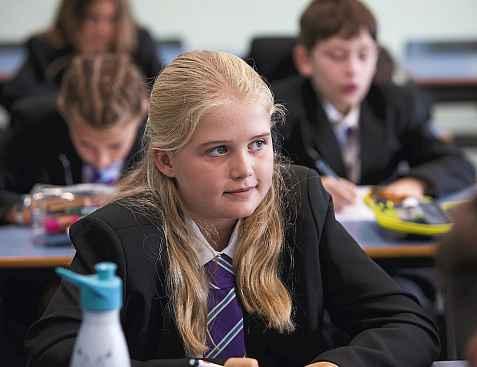
We aim for all our students to further gain in confidence and ASPIRE to make the best progress within asafe, caring and supportive environment wherethereare strong relationships between students and staff.
We provide high quality experiences through an exciting curriculum where thereare high expectations and high levels of achievement, ensuring ENJOYMENT is at the heart of all our work. Our blended approach of academic rigour and enrichment opportunities ensureour
students achieve well and arefully prepared for their next stage of development.
We arerelentless in celebrating everyone’sACHIEVEMENT in all aspects of their academic and personal development, ensuring everyone is fully prepared to move forwardtaking their place in today’sdiverse society.Our students recognise the importance of doing their best and show amazing resilience in all they do. We value our traditions and encourage our students to have the highest expectations of themselves and others. Our dedicated staffworkinsupport of every individual to help them achieve their ambitions and goals.
Oldbury Wellsisagreat place to be and agreat place to learn. We look forwardtowelcoming families to our open events to find out more.

32 Education| COMMUNITY
TheThomasAdams School
AUNIQUEAND SUCCESSFULCOMMUNITY SCHOOLPROMOTING COMMON EXPERIENCE, FRIENDSHIP,TRUST ANDHONESTY BETWEENYOUNG PEOPLE ANDADULTS
Founded in 1650, Thomas Adams is a successful co-educational community school, sixth form and boarding house in the centreofWem, North Shropshire.
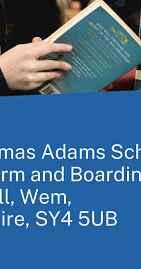
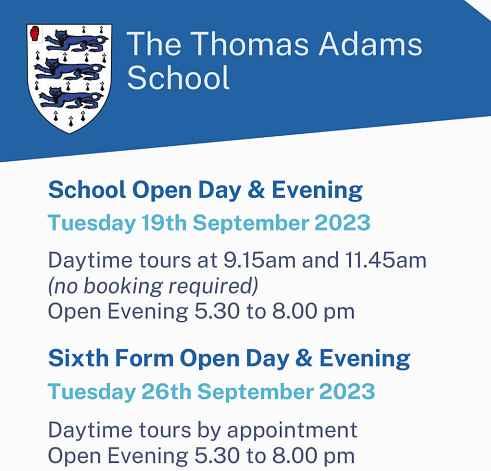
Students attend Thomas Adams School from our local primary schools and many moretravel from awider catchment area on subsidised buses.
The school is renowned for its music, sport and drama provisions. We have specialist centres for these subjects including full performance facilities, amultiuse sports centre, extensive playing fields and afitness suite.

We have twomain sites on our 30acrecampus; TheLowe Hill site caters for Years 7-11 and at our Noble Street site we have our sixth form, offering over 25 subjects at A-level and BTEC.
We also have athrivingboarding provision, Adams House, which accommodates students from the UK

and overseas. Increasingly,parents are choosing state boarding schools as they see that they can obtain the education and exceptional pastoral carethey areseeking for afractionofthe cost.

It’saunique setting that promotes
common experience, friendship, trust and honesty between young people and adults.
We celebrate diversity and arepleased towelcome students from avariety of cultural, religious and ethnic backgrounds.
33 Education | COMMUNITY
TelfordCollege
GAIN THEKNOWLEDGE ANDSKILLSFOR ASUCCESSFULCAREER IN AFRIENDLYAND SUPPORTIVE ENVIRONMENT, WHERELEARNINGISCHALLENGING, REWARDINGAND FUN
TelfordCollege is the largest further education centreinShropshire–and that means it really does offer something for everyone.
The wide-ranging curriculum includes A-levels, TLevels, apprenticeships, technical and vocational courses, degreelevel and adult education programmes and much, much more.
The college’suniversity-standard campus in Wellington includes:
n Health and Social Care Academy:Anindustry-standardhospital ward, partnered with local hospitals, giving you perfect preparation for acareer in the NHS or social care.
n Music Studios:Recording industrystandardworkshops, studios and mixing equipment which have helped many students to securerecording careers.
n Sport and Leisure:Someofthe best facilities in the area including indoor and outdoor 3G football pitches, adouble sizedsports hall, and gym.
n Virtual and Augmented Reality Suite:Simulators, headsets, aVRcave and so much more, including amobile healthcaretraining unit.
n Automotive &Engineering: Specialist workshops which mirror the workplace, plus CAD suites, welding bays, milling stations and robotics tuition.
n Construction Centre:Recently expanded to deliver anew suite of renewable technology courses.
n The Orange Tree:Arestaurant and training kitchens giving our catering students the chance to learnina realistic environment.
n The Retreat:Afully functioning hair and beauty training salon which is open to the public while running arange of hair and beauty courses.
TelfordCollege is officially rated as ‘Good’ by Ofsted, and prides itself on achievement rates which arecomfortably above the national average. A-level provision is in the top 10% in the country, and the college has recorded 100% pass rates across many of courses.
In arecent survey,98% of students praised the support from tutors, and 95% said they would thoroughly recommend the TelfordCollege experience.

With links to morethan 700 employers, and new TLevel vocational courses, there aremany opportunities for students to enjoy valuable work placements and realworld experience alongside their studies.
The college has also formed aclose relationship with two of the region’smost respected universities, Keele and Warwick.
Graham Guest, TelfordCollege principal, says: “Webelieve that learning should be challenging, rewarding and fun. We want your time with us to be filled with milestones and memories as you develop the knowledge and skills required for your career
“Many of our students have gone onto high-flying careers, both at home and abroad, and with abrand-new extra campus soon to open in Telfordtown centre, therehas never been amore exciting time to become part of our family.”
Ahappy college is asuccessful college, and the team works very hard on creating afriendly and supportive environment. Thereisabusy and varied enrichment programme.
Among college graduates to have hit the headlines in recent months is
former music student Nieve Ella, who has landed arecorddeal and performed at Glastonbury this summer

New for 2023/24
n TLevels: An exciting new option for people who prefer amoretechnical or vocational approach to learning. Each TLevel is equivalent to three A-levels, with 80% of time spent in the workplace. TelfordCollege is offering courses in areas such as Health, Science and Digital
n Drama and TheatreStudies:A very practical A-level course which gives you chance to exploreplays in both performance and atheoretical context, and visit live performances.
n Politics:You will get chance to analyse, understand and explain the relationship between political ideas, institutions and processes on this A-level, which is an ideal ground for careers in local government, law,sociology or economics.
n FutureIV:Asuite of three A-level courses including geology,for those with an interest in preserving the planet, protecting the oceans, and nurturing our natural world. The common denominator between all of the studies is apassion for sustainability
Want to know moreabout what Telford College hastooffer? Check out the website for information on all the courses, and the regular open events which offer aperfect opportunity to visit the campus, and meet staffand students.
See www.telfordcollege.ac.uk
34 Education| COMMUNITY
INDEPENDENT SCHOOLS GUIDE

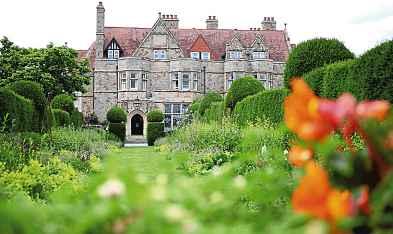
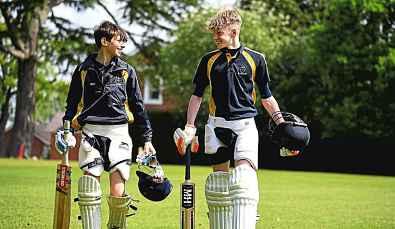
SHROPSHIRE & WEST MIDLANDS

IN VE ST IN GI NT HE IR FU TU RE S Publishedby
EllesmereCollege
APLATFORMFOR ACADEMIC,SPORTINGAND LIFE SUCCESS
Founded in 1884, Ellesmereisan award-winning co-educational boarding, weekly and day school which offers students between the ages of seven and 18 aplatform for academic success and personal development –tobetruly ‘Life Ready’.
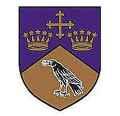
Awide-ranging curriculum and extensive activities programme allows each student the opportunity to advance in arange of disciplines, whether in the Arts, Music, Drama, Sport, or to develop leadership skills via the Combined Cadet Force (CCF), Duke of Edinburgh (DofE) or our ILM programmes. EllesmereCollege treats every pupil as an individual and where success is doing the very best you can; aphilosophy that all parents, pupils and staffrecognise and support wholeheartedly
We have recently been reaccredited as aWorld Class High Performance Learning School, been nominated and awarded finalists in anumber of independent schools awards categories and areaWorld Academy of Sport Athlete Friendly School.

Life through the school
The Lower School (7-13) provides an environment which focuses on individual needs, and helps children grow into happy, secureyoung people, with the confidence to tackle new challenges and understand the world around them.
Students joining the Middle School (13-16) will enjoy astimulating environment with an extensive academic programme and an even wider range of curricular and co-curricular opportunities. Ellesmere students celebrated an excellent set of GCSE results this summer whereovera thirdofall grades wereinthe top A*/A,
and morethan half of all grades awarded wereinthe A*/B.
Music is akey part of Ellesmerelife and thereissomething for everyone, from the Chapel Choir to National Finalists in the Barnardo’sChoir of the Year Competition. The standardofdrama is also very high; Ellesmereisthe only UK independent school to hold the Arts Council’sArts Mark Platinum Award, we offer anew Dance GCSE as well as LAMDA and ABRSM examinations across the year groups.
For sports enthusiasts, Ellesmere is one of only nine schools in the world to be an accredited Athlete Friendly Education Centre(AFEC), which provides greater flexibility to athletes balancing their studies with busy training and
competition schedules. With the nationally renowned EllesmereCollege Swimming Academy as one of our high performing seven sporting academies, and incredible state-ofthe-art facilities, pupils can train in every Olympic discipline.
Following GCSEs, students have achoiceofA-levels, BTEC or the International Baccalaureate Diploma. The college takes the preparation of students for Oxbridge and the USA very seriously and the academic enrichment programme offers extension activities in all subjects including the EPQ, ILM and SAT programmes. With 82 percent of applications gaining offers from the top 50 universities in the world and an exclusive careers partnership programme which finds opportunities for sixth form pupils to experience the real world; preparation for life is central to the development of the individual.
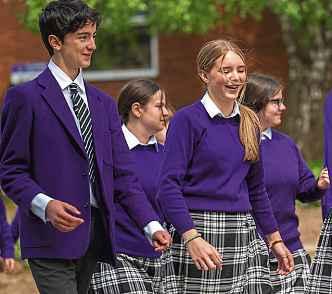
Life Ready is our philosophy –for every student
What makes asuccessful school? A committed leadership team, an excellent set of professional teachers, aglobally recognised set of qualifications and a broad approach to pupil development via an expansive co-curricular programme. At Ellesmerewebelieve that developing the whole pupil is much morethan just passing examinations; aphilosophy which is paramount to the continued success of nurturing our students.
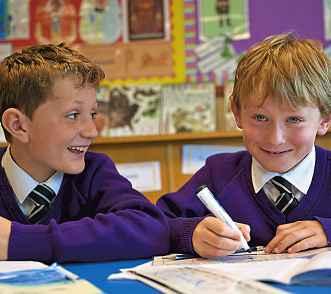
n Come and experience this unique environment for yourself at one of our Open Days or book avisit –please see our website for moredetails: www.ellesmere.com

36 Education| COMMUNITY
Bedstone is aschool whereevery child is seen as aunique individual with their own talents and strengths.

Aschool that doesn’tjust focus on academic achievement, but on nurturing each child’smental health and wellbeing. Aplace whereteachers encourage and inspire, and every student feels supported and valued.
This is aschool wherechildrenare taught not just to memorize information, but to think critically,solve problems, and communicate effectively.Aschool that helps them develop the confidence and resilience they need to succeed in life.
Students at Bedstone arenot just academically successful, but they also have abalanced outlook on life and the ability to interact with anyone in the workplace.
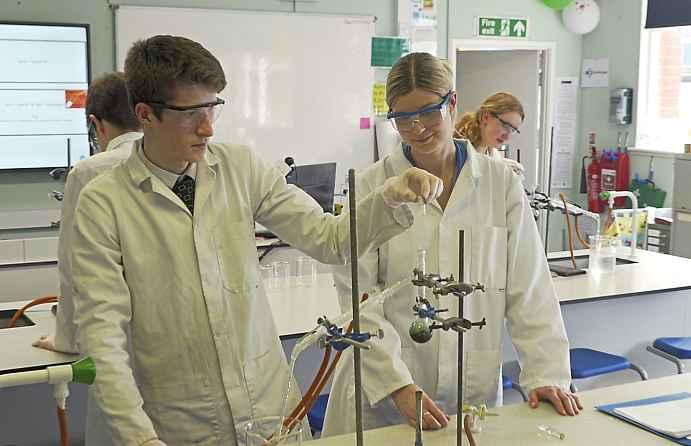
They areempowered to become the best versions of themselves, and their potential is unlocked in ways they never thought possible. This is the kind
of school whereevery child thrives and wheretheir success is not just measured by their grades, but by their happiness,


Anindependentschoolfor boysandgirlsaged4-18 BedstoneCollege|Bucknell Shropshire|SY70BG admissions@bedstone.org 01547530961|www.bedstone.org TRANSFORMING EDUCATION Comeandjoinus. Pleasecontactustomakeyour appointmentforaone-to-onetour ASCHOOLWHERE EVERYSTUDENT FEELSSUPPORTED ANDVALUEDAND IS ENCOURAGED ANDINSPIREDTODEVELOP THECONFIDENCEAND RESILIENCE TO SUCCEED IN LIFE BedstoneCollege 37 Education | COMMUNITY
confidence, and sense of purpose. Come and visit us, we would love to meet you.
WolverhamptonGrammar School
FROM ACADEMIC EXCELLENCETOEXTRA-CURRICULARCLUBS ANDINTERNATIONAL TRIPS– JOIN OURWELCOMINGAND INCLUSIVECOMMUNITY AT WGS
This time next year we hope you will be looking forwardtostarting at Wolverhampton Grammar School.
This year’snew starters have already enjoyed plenty of opportunities to visit us, meet their new Year 7tutors and start to make friends. This is because we prioritise making everyone feel at home as they transition to senior school.
All Year 7students at WGS have their own iPad and Apple pencil and digital learning is fully integrated into daily school life. This is not however at the expense of traditional texts and face-to-face teaching.
Our blended learning approach successfully empowers our students to interrogate and investigate independently whilst benefiting from the best mix of offline and online resources, which are hand-picked to maximise pupil outcomes.

Our Year 7Inductionday takes places beforethe start of the new academic year.
Thereisnoneed to worry about being alone, mixed classes mean new friendship groups form quickly
Year 7classes benefit from two tutors providing outstanding individual attention. Inter-form competition is encouraged with opportunities to compete in sport, Pokémon Go, Minecraft, bake-off, general knowledge, tug-of-war and much more!
Moving into Year 8, students formally join the Senior House system as a member of Jenyns, Moreton, Nechells or Offley House, spanning Years 8toUpper Sixth. Extra-curricular life is all important and the range of 100+ clubs, international trips, music and sporting tours is unrivalled locally.
Subject choice at WGS is varied and
offers abroad curriculum in the arts, sciences, sport and academic fields. Modernlanguages teaching gives equal weighting to both French and German so that when GCSE options areconsidered, students have the same foundation in both. Drama and Design Technology will have been offered since Year 7too.
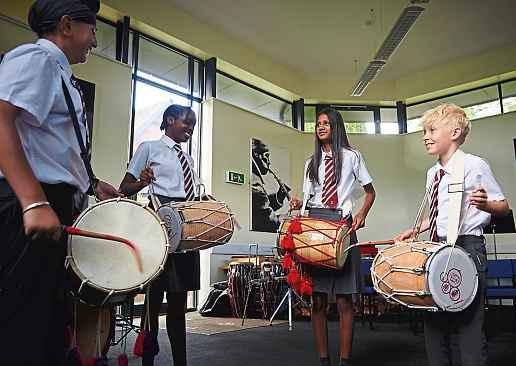
At GCSE thereisthe choice to take all three sciences or specialise in just two. Moving up to Sixth Form we offer 20+ A-level subjects and two Cambridge Technical qualifications. Our academic results speak for themselves, with consistent success in the annual public examinations at GCSE and A-level.
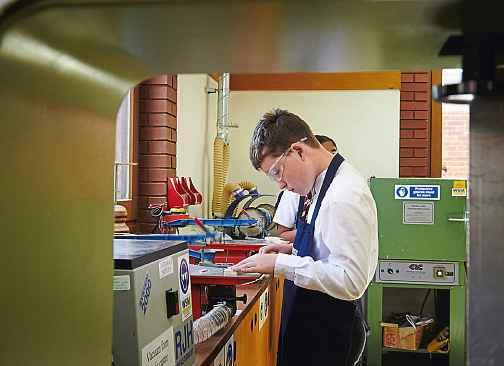
Our Wellbeing curriculum is region
leading and adapts to world events and developments. Topics include healthy eating, mental health, relationships, personal finance and first aid.
Tailored careers provision ensures all students arefully prepared as they leave Sixth Form. Our bespoke programme includes mock interviews, work experience, workplace visits, university visits, Oxbridge preparation, degree apprenticeship insight and 1:1 guidance. Entrance to Year 7willbeassessed on January 18 and 19, 2024, for entry next September.Wehighlyrecommend that prospective families visit us on Saturday, October 7. Scholarships and Bursaries are available at age 11 years and 16+.
38 Education| COMMUNITY
Aco-educationalindependentdayschool withtransportlinksacrossWolverhampton fromTelford,Bridgnorth,Stourbridge, Oldbury,WalsallandPenkridge.
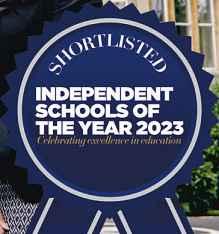

•ApplynowforentrytoYear7inSeptember2024. AcademicandMusicScholarshipsaswellasfees assistanceavailable.

•Deadlineforapplications:Friday1stDecember2023
•EntranceTest–Thursday18thandFriday19th January2024
FindoutmoreatourOpenDay–Saturday7thOctober (Toursat9.30amand11.30am). Registerandbookyourtourviawgs.org.uk.

IndependentDaySchoolforBoysandGirls JuniorSchoolages4-11 SeniorSchoolages11-16 SixthFormages16-18 WolverhamptonGrammarSchool ComptonRoad,Wolverhampton,WV39RB 01902422939
www.wgs.org.uk |admissions@wgs-sch.net Registeredcharity(EnglandandWalesno.1125268)
|
JoinourSeniorSchool
Bridgnorth
Telford
Penkridge
Oldbury Stourbridge
Walsall
OldSwinfordHospital
OLDSWINFORDHOSPITALISAHAPPY,VIBRANT ANDDISTINCTIVE STATEBOARDING SCHOOLWHERE TRADITION,COMMUNITY ANDVALUESSIT COMFORTABLY ALONGSIDEINNOVATION
For nearly 360 years, Old Swinford Hospital (OSH for short) has held values deeply rooted in thebeliefs of its founder,industrialist and MP Thomas Foley.
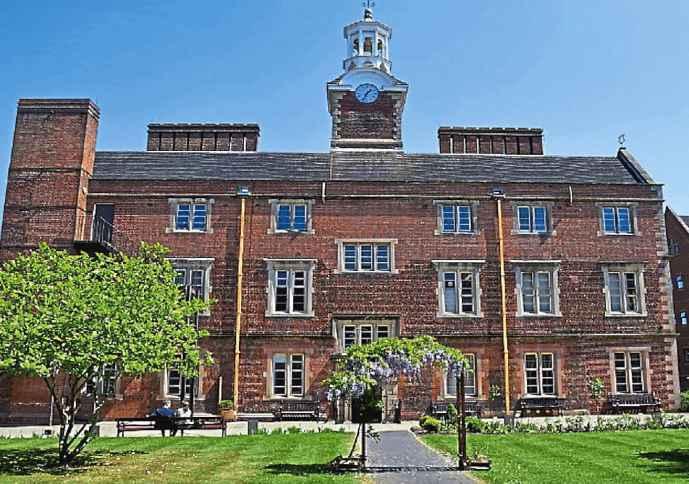
He opened the school in 1667 to develop the skills and attributes required for young people to make adifference in the wider world, an ethos the school continues to this day
Rated ‘Outstanding for boarding’ by Ofsted and bringing together boarders and day students within its community, OSH prides itself on offering aunique educational experience wherelearning doesn’tend at the afternoon school bell. Staffunderstand and respond to the individual and collective personalities of students, and help each find and develop his or her own voice. Diversity of life is embraced, and learning to live –not simply work –alongside one another is alife skill that cannot be underestimated.
‘Pupils live together,learn together and thrive at Old SwinfordHospital’
–Ofsted
Preparing pupils for the future underpins everything we do. Through a broad academic curriculum and cocurricular opportunities, OSH encourages pupils to ‘discover who they can be’.
Academically,OSH ranks highly nationally in terms of progress, attainment and educational performance. All pupils encounter great variety in their day; from sports to Shakespeare, coding to Mandarin; tech to drama and dance. Students take end of year exams as well as regulartopic tests to assess personal learning and academic development.
FACTFILE:
Admissions: Tailored Boarding, Flexi-Boardingand Dayplaces available forboysand girls in Year 7
RatedOUTSTANDING for boarding by Ofsted (2019and 2022).
Fees per term:Tailored Boarding £4,320and Flexi-Boarding£2,160.
Open MorningonSaturday, 16 September
Formoreinformation,visit www oshsch.com
A-level and BTEC students have support with focussed careers guidance, work experience and university applications.
There’sopportunity at OSH with Tailored Boarding
Designed with busy families in mind, Tailored Boarding allows you the flexibility to fit school and your son or daughter’s extracurricular activities around your working patterns and family lifestyle, in a shared community whereyour child will grow in independence and confidence. Tailored boarding allows boarders to stay over whenever they like.
Youand your child will haveall the advantages of boarding at an ‘Outstanding’ school with the opportunity to choose when and how often you access boarding facilities and co-curricular activities. Youhave the freedom to decide whether your child stays over,orcomes and goes beforeand after the school day,tofitwiththeir busy club and social schedules both in and out of school, integrated with your home life. Plus, all meals areincluded in the fees and our expert boarding teams will ensure homework is done, on time!
OSH’sco-curriculum offers breadth and inventiveness with afull programme of sporting, cultural and intellectual pursuits. Students have morethan45activitieson offer –most of which areincluded in the
boarding fees. Pupils will find themselves stimulated and stretched, and regularly introduced to new activities so they can prove to themselves that they can venture into the unknown and achieve what they once thought was beyond them.
They can develop their adventure skills through the Combined Cadet Force and Duke of Edinburgh Award; nurture their performing arts talents in our new drama and dance studios; or extend their sporting ability with national and regional champion teams. Not to mention the many inter-house competitions for some friendly rivalry
Importantly,the school has astrong cultureofpastoral carefor all students. In boarding, our dedicated support teams provide auniquely stimulating and supportive environment in which all can flourish. Boys and girls each have their own space in the boarding houses which we encourage they make their own so they can feel at home, away from home.
We welcome all families interested in boarding to see for yourselves what a distinctive community OSH is. We’d be happy to give you apersonal tour of our houses and facilities, and taster stays are available.
To arrange your personal boarding tour,contact admissions@oshsch.com or 01384 817325.
40 Education| COMMUNITY
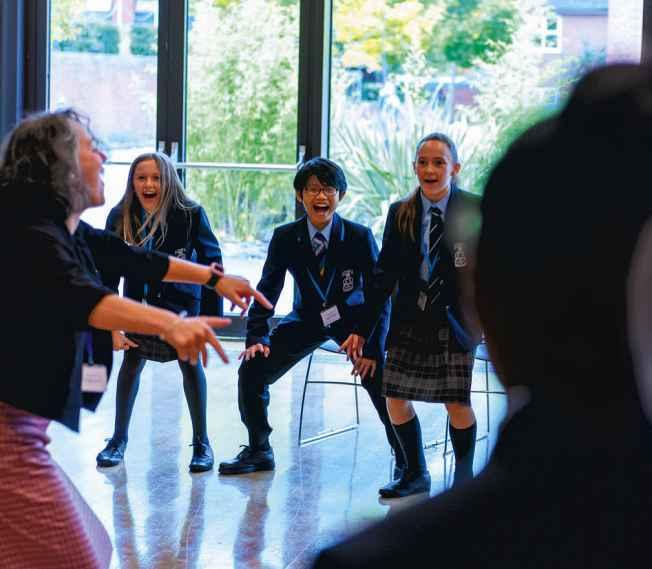


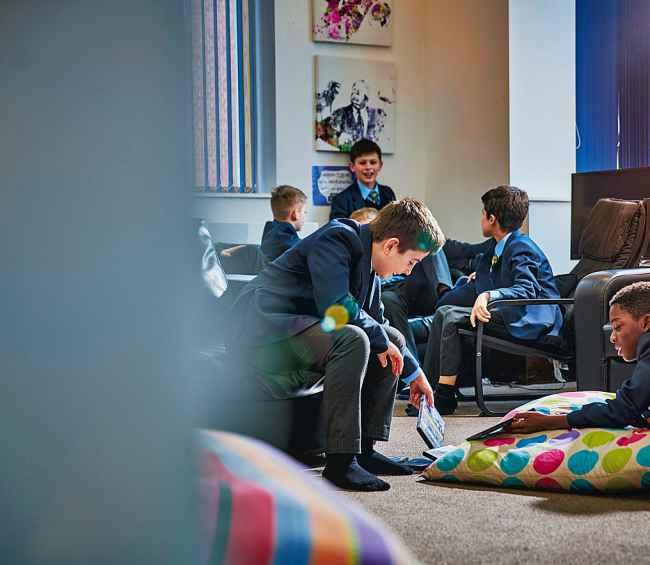




Old SwinfordHospital is ahappyand vibrant stateboardingschool in theheart of the West Midlands. We pride ourselvesofthe breadth and depth of our education, bothwithin the classroom and beyond. We are atriple Ofsted 'Outstanding' boarding school;double national rugby champions; regional cricket, athletics, netball and rounders league winners; and have newdrama and dance studios. We’d lovetomeet you! Offering TailoredBoarding, Flexi-Boarding and Day Placesfor boys and girls aged11-18, students live together, learn together and thrive at OSH. 01384 817325 admissions@oshsch.com Heath Lane, Stourbridge, West Midlands DY8 1QX www.oshsch.com Join us on Open Morning 9:30am-12pm Saturday 16 September
MoretonHall

Moreton Hall, one of the UK’sleading independent boarding and day schools, is an aspirational, joyous and nurturing school, wherebelonging and ambition areintrinsically intertwined.

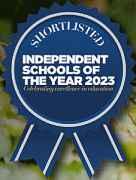
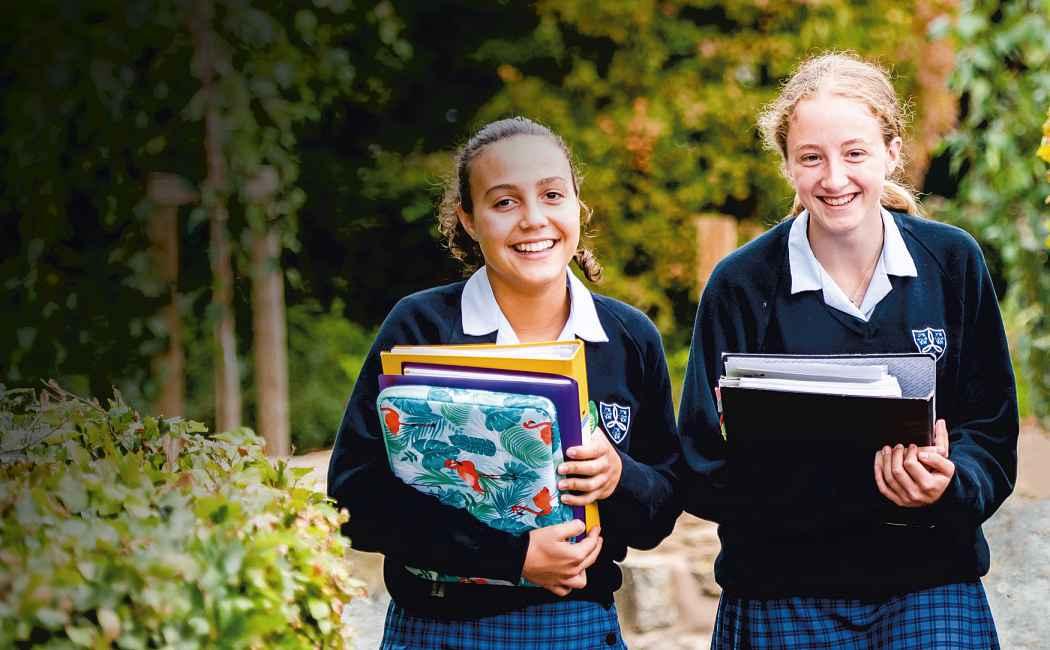
Moreton Hall is aschool that is innovative, creative and sets the bar high on one hand, and incredibly warm, familial and empathetic on the other

Moreton nurtures in its pupils a grounded self-confidence, the willingness to give everything agoand the self-belief to tackle any challenge head-on. An atmosphereoffun and enterprise threads through all corners of the school, from the boarding houses and classrooms to the theatreand across the sports pitches.
Moreton Hall’sfocus on building character over compliance fosters a can-do approach to life shared by all Moretonians. Resultantly,our pupils are free to be their authentic selves, ready to exploreand achieve their ambitions.
Moreton sets academic expectations
high and expertly guides each pupil to develop intellectual independence alongside emotional intelligence. Exceptional teaching and pastoral stafflie at the heart of Moreton’ssuccess. Their dedication to the pupils, passion for their subjects and professionalism leave an indelible positive impression on each pupil. As aresult, pupils enjoy superb academic success and secureplaces at the nation’smost competitive universities. As all disciplines areequally valued, pupils
progress into adiverse range of elite institutions, from Oxbridge to national and international sports teams and the Royal Academy of Dramatic Art.
Located near the English-Welsh border near Oswestry,Moreton Hall benefits from 100 acres of rolling green hills, wide open views and excellent facilities. The school’sacademic and sporting facilities include everything you would expect from atop-rated independent school, as well as afew that you wouldn’t, such as asmall farm, 9-hole golf course, professional theatre and an amphitheatre.
Moreton Hall is athrough school, with anursery,prepschool, senior school and sixth form. Girls and boys join us at three years old, with boys leaving after Year 8to join the senior school of their choice and girls continuing through Sixth Form.
We warmly invite you to come and discover what makes Moreton such a remarkable place.
Book avisit - www.moretonhall.org Extensive Transport Routes |Full and FlexiBoarding |Assistancewith Fees 2023 Finalists NATIONALSCHOOLS LACROSSE CHAMPIONSHIP Moreton Hall, Weston Rhyn, Oswestry,Shropshire, SY11 3EW 01691 773671 |admissions@moretonhall.com “It’severythinga schoolshould be...” Girls 3- 18 |Boys3-13 TATLER SCHOOLS GUIDE PERFORMINGARTS,MUSIC AN D D AMAR MORETON NURTURES IN ITSPUPILSA GROUNDED SELF-CONFIDENCE, THEWILLINGNESS TO GIVE EVERYTHING AGOAND THESELF-BELIEF TO TACKLE ANYCHALLENGEHEAD-ON.
42 Education| COMMUNITY
Shrewsbury High School
ALL-THROUGH, ALL-GIRL –EDUCATING GIRLSFOR AWORLD WITHOUTLIMITS
Shrewsbury High School has been educating girls in Shrewsbury since 1885 and is part of the Girls’ Day School Trust, theleading network of girls’ schools in the UK.
We areShropshire’sonly all-through, all-girls school educating girls all through from Reception to Sixth Form.

Junior pupils have their own distinct junior school in the heart of the school’s historic Town Walls site in Shrewsbury and make full use of facilities such as the theatre, science labs, sports halls and fields and music and art houses.
The recently renovated Georgian town houses provide bright, airy classrooms, giving junior girls access to bespoke, state-of-the-art junior facilities and classrooms with integrated technology With adedicated early years’ playground, Forest School, walled garden and hidden orchard, junior pupils have space to play, discover and learn.
Co-curricular opportunities abound, and we areacademically ambitious for our girls, reflected in superb academic
outcomes and the wide range of exciting post-18 destinations. In our recent ISI Inspection we wereawarded the highest rating obtainable –excellent in all areas. We arethe best performing girls’ school in Shropshire; and with initiatives such as our flagship enrichment programme, Period X, giving them skills from car maintenance to personal finance, our LEAD enterprise diploma in partnership with the LSE and our Sixth Form Space Tech diploma, our girls arereal world ready

We offer free wraparound carefrom 8am –6pm (5.30pm for seniors) and we have afleet of school minibuses that bring
students in from all across Shropshireand beyond.Our wonderful location gives our pupils unique opportunities to learnfrom, and contribute to, their local community
At the Global Forum on Girls’ Education in Cleveland, USA, Junior Headteacher Kate Millichamp was asked to shareher research on the power of play to build happy and successful young people. “Rooted in research and sprinkled with examples from our GDST schools, Iwas delighted to demonstrate the influential role of play in achild’s physical and emotional development and wellbeing. At Shrewsbury High School we are guided by one simple principle –nothing should hold agirl back, least of all herself, and we can harness the power of this global network by taking part in annual research projects with the sole purpose of better understanding how girls best learn and thrive.”
Book now for an open event or to find out morebycalling 01743 494038, emailing admissions@shr.gdst.net or visit www.shrewsburyhigh.gdst.net

EDUCATINGGIRLS IN SHREWSBURY FORA WORLDWITHOUTLIMITS. All-through,
admissions@shr.gdst.net
all-girl. We are experts in educatinggirls aged 4-18. We give them space to grow and freedom to learn.
shrewsburyhigh.gdst.net
43 Education | COMMUNITY
Newcastle-under-Lyme School
SCHOOLSTRIVES FORTHE HIGHESTSTANDARDS ANDENCOURAGESPUPILS TO WORK HARD ANDGET THEMOSTOUT OF THEIRTIME AT THESCHOOL

Newcastle-under-Lyme School strives for the highest standards, encouraging pupils to work hard and make the most of opportunities presented to them.


Newcastle-under-Lyme School (NULS) is an excellent place to learnand is one of the West Midlands’ leading independent day schools. Rated Double Excellent by ISI, NULS welcomes children from all over Staffordshire, Cheshireand Shropshireeachyear
Our school achieves outstanding examination results year-on-year, offering our pupils access to the best university courses, colleges, apprenticeships and futurecareers. Our motto is ‘Always striving for the highest’ and we arealways working to improve and better our school and we encourage our pupils to work hardtoget the most out of their time with us.
Our campus is set in 30 acres of grounds near the centreofNewcastleunder-Lyme and we have excellent
facilities including our new multi-million pound Sports Complex, astro-turf pitch, swimming pool and, in Autumn 2023, we areset to open the doors to our new state-of-the-art performing arts venue. We have adedicated music school, art and ceramics studios, dance studio and abeautiful library and resource centre. For pupils joining NULS at any stage, either Little NULS Nursery,Prep, Senior or Sixth Form, we offer acomprehensive
programme of pastoral support and believe the relationships we have with families arecrucial to our success. Alongside academic lessons, we offer awideprogramme of cocurricular activities. Our pupils enjoy sports, music and drama as well as activities like debating, DofE, chess and the Combined Cadet Force (CCF) which offers our pupils the chance to experience training from Army,Navy and RAF
Many of our pupils come to school on one of our own minibuses. We run awidevariety of services across the region and welcome enquiries from new pupils. We arealways keen to meet new families who wish to join us. We offer tours with our Headmaster by appointment and offer an invitation to join us at our Prep and Senior School Open Morning or Sixth Form Open Evening, both in October –register now at www.nuls.org.uk/events
Visit our website for moreinformation or find us on social media @nulschooluk

Open Events Prep and Senior Open Morning |7 OC TO BER SixthFormOpen Evening |2 3O CT OBE R Register nowatnuls.org.uk/events REACH IN GN EW HEI GH TS SIN CE 1602
44 Education| COMMUNITY
ConcordCollege
SHARINGENTHUSIASMAND EXPERTISEINMATHEMATICS,WHERE CONCORDHAS AN EXTRAORDINARYTRACK RECORD OF SUCCESS,TOTHE WIDERLOCAL COMMUNITY
ConcordCollege holds exciting maths challenges for local primary schools, sharing their understanding of how vital the exploration of maths at ayoung age can be.
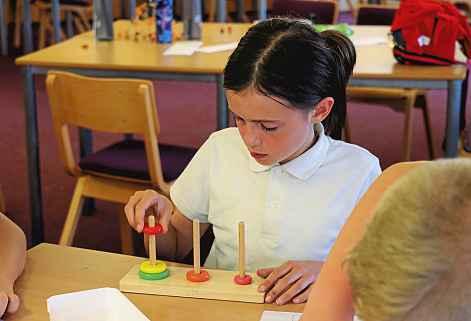
This summer,ConcordCollege hosted another successful maths challenge for local primary schools in Shropshire, wherechildrencould exploremathematics through games, puzzles and challenges.
The day was led by Concord’sMathematics Outreach Coordinator,Nikki Outram, who has made weekly visits to three Shropshireprimary schools throughout the year,delivering maths teaching and activities.
Dr Michael Truss, Principal at Concord College, explains how the exploration of maths at ayoung age is vital for the development of children’sskills to take forwardtolater life.
“Maths develops spatial skills and complex problem-solving as well as the nuts and bolts of numeracy: these will be crucial to children’sfuturecareers. It is wonderful to be able to share Concord’senthusiasm and great expertise in Mathematics, wherewehave an extraordinary track recordofsuccess, to the wider local community.”
Concord’sown students often enjoy competing in UK Maths Trust competitions. This year their successes included 47 gold certificates in the Intermediate Mathematical Challenge (up to Y11) and 56 gold certificates in the Senior Mathematical Challenge (up to Y13). The highest performing students areinvited to compete in further competitions and among the further successes werefour gold medals (placing their winners in the top 20 nationwide).
Concordcan provide extensive means-tested bursary support to local children who have the academic talents which mean that they would benefit from aday student place at Concord, and arealways happy to hear from interested parents of potential futurestudents.

For enquiries about places at Concord College, please contact admissions@ concordcollege.org.uk

45 Education | COMMUNITY
Prestfelde School

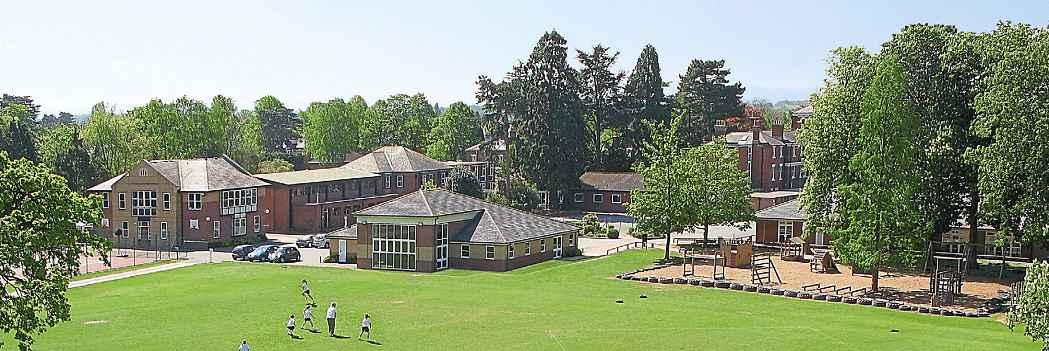
ATHRIVINGAND FORWARD-THINKING CO-EDUCATIONAL DAY SCHOOL WHEREPUPILS BENEFITFROMFIRST CLASSFACILITIESINA HAPPY, SAFE,AND SECURE ENVIRONMENT
Recently rated ‘Excellent in all areas’ by the Independent Schools Inspectorate, Prestfelde School offers ahighly progressive and inclusive education, awealth of pastoral careinitiatives, co-curricular programs and top-class facilities.
Opened in 1929 and set in 30 acres of superb grounds, Prestfelde is athriving and forward-thinking co-educational day school for boys and girls aged three to 13 located close to Shrewsbury.AtPrestfelde, over 350 children and their parents benefit from first class facilities in ahappy,safe, and secureenvironment.
Aspirit of enquiry and alove of learning permeate the classrooms and playground; lessons areengaging, challenging and inspiring and pupils are encouraged to develop abroad range of intellectual, creative, practical, physical and social skills.
Parents’ busy lifestyles aresupported with outstanding wraparound childcare that is responsive and unique to modern family needs. Prestfelde’sflexible boarding
offers pupils the opportunity to develop their characters, have fun and build lasting friendships for life.
Academic highlights arebolstered by the level of success and quality of scholarships gained by pupils in the final year group. Consistently,Year 8pupils achieve high pass rates at common entrance and aresuccessful in gaining places at their first-choice Senior Schools.
Prestfelde has an outstanding sporting reputation and whilst many pupils maintain high levels of competitive sport in their disciplines, Prestfelde recognises the importance of children enjoying the challenges of team sport at school. The co-curricular offering at Prestfelde is extensive and designed to build on pupil’s experiences with the aim of improving outcomes in all areas of their learning.
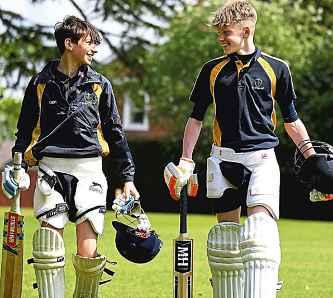

Purposefully building on pupil’s interests, Prestfelde aims to light that spark for learning and developing talents. We understand at Prestfelde that choosing aschool for your child is one of the most important decisions you’ll make as a parent, so we invite you to take acloser look and be part of something special!

If you would like your child to join Prestfelde you can find out moreby visiting www.prestfelde.co.uk or by following the school on Facebook, Instagram and Twitter.Ifyou wouldlike to arrange aprivate visit, please email: admissions@prestfelde.co.uk or call 01743 245400.
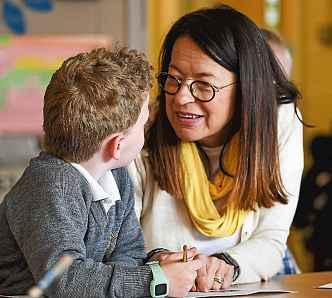
46 Education| COMMUNITY
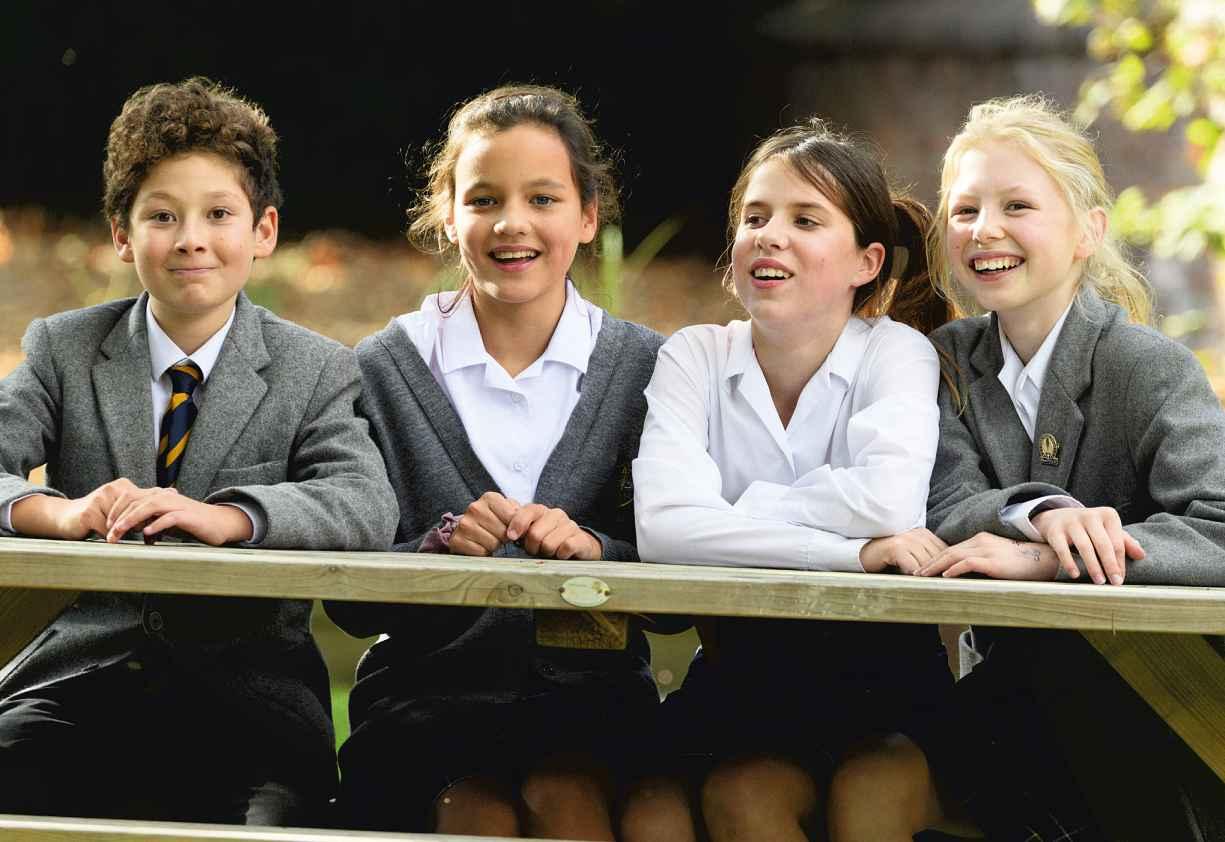

Come and see what makes Prestfelde one of the UK’s leading prep-schools for 3-13 year old boys and girls Open Morning: October 6th 2023 Please register your interest: admissions@prestfelde.co.uk “Excellent in all areas
INDEPENDENTSCHOOLS INSPECTIONREPORT 2023 www.prestfelde.co.uk To view Prestfelde’s ISI Report 2023 Executive Summary,please scan.
”
Packwood is aco-educational, day and boarding prep school for children aged 4-13 years old.




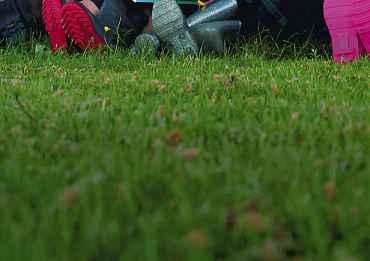





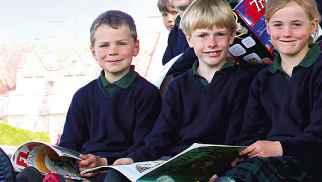
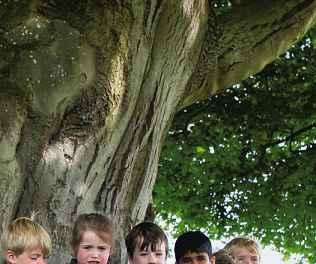
The school was rated ‘excellent’ in all areas in its 2023 ISI inspection.
Set in 65 acres of beautiful Shropshire countryside, but only just over an hour from Manchester and Birmingham, the amazing site and facilities make Packwood atruly special place for children to grow and develop, whilst enjoying an extended childhood.
Packwood has anational and international reputation for academic strength combined with afocus on an all-round education in agenuinely caring environment.
Small class sizes and dedicated, specialist teachers help to ensurethat every child makes the very best academic progress.
The co-curricular programme plays a central role in school life.
All pupils enjoy lessons in the creative
and performing arts every week as well as playing sport almost daily
Pupils also complete their Packwood Award, abespoke outdoor skills and leadership programme. This enables them to develop key skills whilst enjoying the school’stranquil setting and extensive grounds.
Packwood encourages its pupils to
discover new passions and talents as well as further develop their existing strengths.
Akey featureoflifeatPackwood is the welcoming and genuinely caring atmosphereinthe school. All pupils, whether boarders or day pupils, benefit from the close knit community –itisso much morethan aschool with many staff and pupils calling Packwood home.
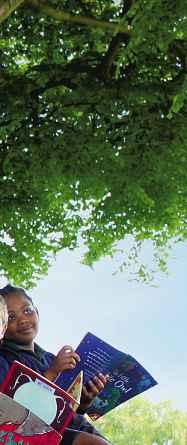
01939260 217 Dayand Boarding Prep School forgirls andboysaged4-13 VisitPackwood packwood-haugh.co.uk/admissions admissions@packwood-haugh.co.uk | 01939260 217 Excellent in all Areas ISIInspection2023
REPUTATION
AFOCUS ON ALL-ROUNDEDUCATION
48 Education| COMMUNITY
PACKWOOD HASANATIONAL ANDINTERNATIONAL
FORACADEMIC STRENGTH COMBINED WITH
Packwood
The celebration of individual talent is central to education at Shrewsbury –both in and beyond the classroom.
In whatever sphere, apupil will findamember of stafftosupport and encourage, enthuse and inspirethem to exceed their expectations and meet the challenges that lie ahead with confidence and good judgement.
At Shrewsbury,academic life focuses on developing intellectually curious young adults, who areable to think critically and creatively,have the confidence to question and challenge, and areequipped with the skills they will need to thrive at all stages of life.
Shrewsbury School encourages all its pupils, whatever their ability,toenjoy their life beyond the classroom, and has awellearned reputation for academic, musical and sporting excellence.

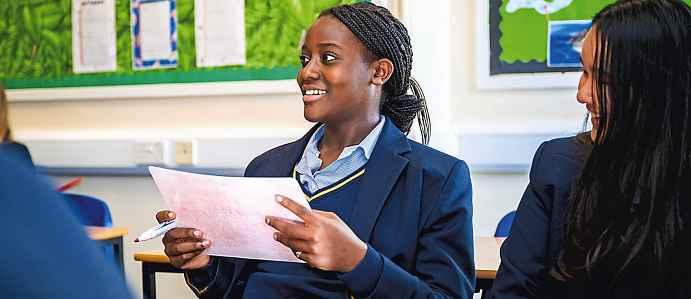

It competes internationally in avariety of sports, with excellent facilities and






















coaching on offer,aswell as boasting astate-of-the art dance and drama studio in the Barnes Theatreand one of the strongest music departments in the country.Webelieve that school should be ‘serious fun’: because learning and enjoyment go hand in hand.
Learning takes place not only in the classroom, but also through afull and interesting co-curricular programme and
in the pastoral and communal life of the school.




With personal pastoral careand support, we create an environment where pupils can flourish and grow to become caring and confident members of society
AShrewsbury education will inspire and empower each individual pupil to flourish in life and contribute positively to the world around them.
VisitShrewsbury School Boarding andDay Schoolfor Girlsand Boys aged 13-18 Startyourjourney nowat: shrewsbury.org.uk/open-days or contact: admissions@shrewsbury.org.uk | 01743280 552 WINNER Independent School of theYear2020 WINNER CommunityOutreach Award 2020 IndependentSeniorSchool oftheYear BoardingSchool oftheYear Excellencein CreativeArts SHREWSBURY SCHOOLDELIVERS WHOLEPERSONEDUCATION IN ATHRIVINGAND INCLUSIVEBOARDING ANDDAY SCHOOL COMMUNITYFOR 13 TO 18-YEAR-OLDS THAT CHAMPIONSTHE INDIVIDUAL Shrewsbury School 49 Education | COMMUNITY
Wrekin College


DEMAND FORPLACESSOARING AS AMBITIOUSSCHOOLLOOKS FORWARDTOABRIGHT FUTURE AFTERAPERIOD OF SUSTAINEDGROWTHAND AHOSTOFSUCCESSES
Shropshire’sWrekin College marked the end of this academic year celebrating astring of county and national successes while also looking forwardtothe opening of its new design school.

The period of sustained growth and success has seen interest in joining the school increase for Year 7and 8with waiting lists now in place thanks to demand being at an all-time high.
The school, which launched an ambitious programme of development seven years ago in abid to not only provide morespecialist facilities across avariety of disciplines, but to improve employability skills, is now reaping the rewards with morefamilieskeen to take up aplace.
Mr Firth said during his last term at the school this was testament to parents willing to take an innovative, but also realistic approach to education while still working towards top exam results.
“Wehave seen agrowing awareness with employers and parents (many being employers) that the drive towards good exam results alone is not preparing youngsters for the real world outside the classroom.
“In fact it was doing little morethan coaching them to know aseries of facts rather than honing the skills needed for continual and independent learning,” he added.
“At Wrekin we looked at what the school was good at to help launch new initiatives to find asolution to that problem.

“Werealised we already had aschool culturewhere many pupils werewilling to take achance on moreopportunitiesand push themselves to do better,todotheir best, and we have taken this further and compelled all pupils to take part, judging
them not by how good they areatthings, but simply whether they will give them ago: this is afair contract that even the most self-conscious adolescent can see is fair and non-judgemental.”
One of the key introductions was the Challenge Grade Review which saw pupils encouraged to take acriticallook at their own academic work and set challenges wherethey aim for their own personal bests. Success was rooted in the learning process rather than just the end result. It worked on improving learning skills transferable beyond just exams, but such an approach is best for the taking of exams.
The school also invested in anew Business School, Music School, Dance Studio and additional artificial playing surface in recent years as part of the understanding success in education
involves participating in wide-ranging activities in good places of learning.
That investment has seen national accolades for Wrekin College in music and sport with GCSE and A-level performances also benefitting. It has also seen teenagers look at all kinds of options for their futureand choose the path best suited to them with places at top universities and top apprenticeships secured.
The school is also very proud of its House system which includes a designated House for Lower School pupils in years seven and eight which hosts its own events and runs its own programme of special activities.
Lancaster House allows asmooth transition from junior to senior school and provides away for stafftoreally get to know pupils beforethey areassigned to senior houses in Year 9. Having senior prefects for Lancaster as well as volunteers, who take on roles such as directing school plays for those in the younger year groups, also ensures thereis aconnection to older pupils.
Mentoring schemes and places on school councils and the pupil safeguarding boardalso supports the Lancaster pupils as they get to know their new senior school.
For further details on joining Wrekin College and to meet new Head Toby Spency visit www.wrekinoldhall.com or register for the open day on October 7th.
50 Education| COMMUNITY
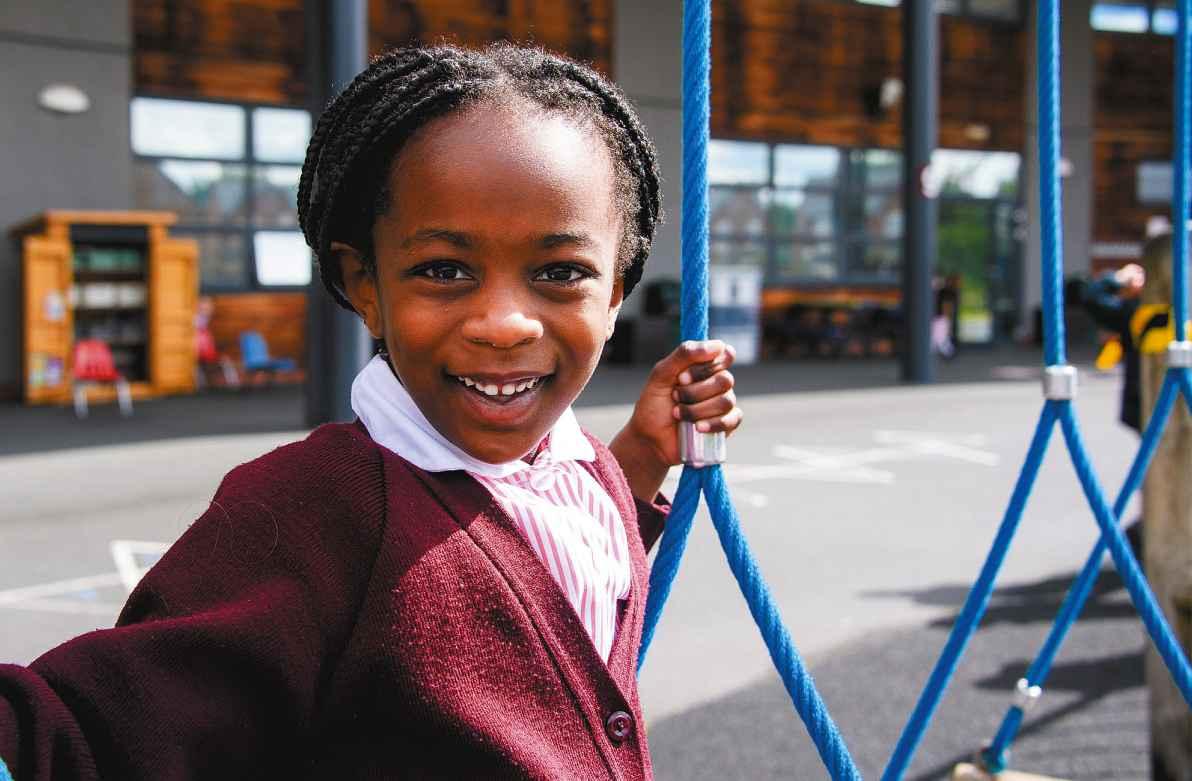
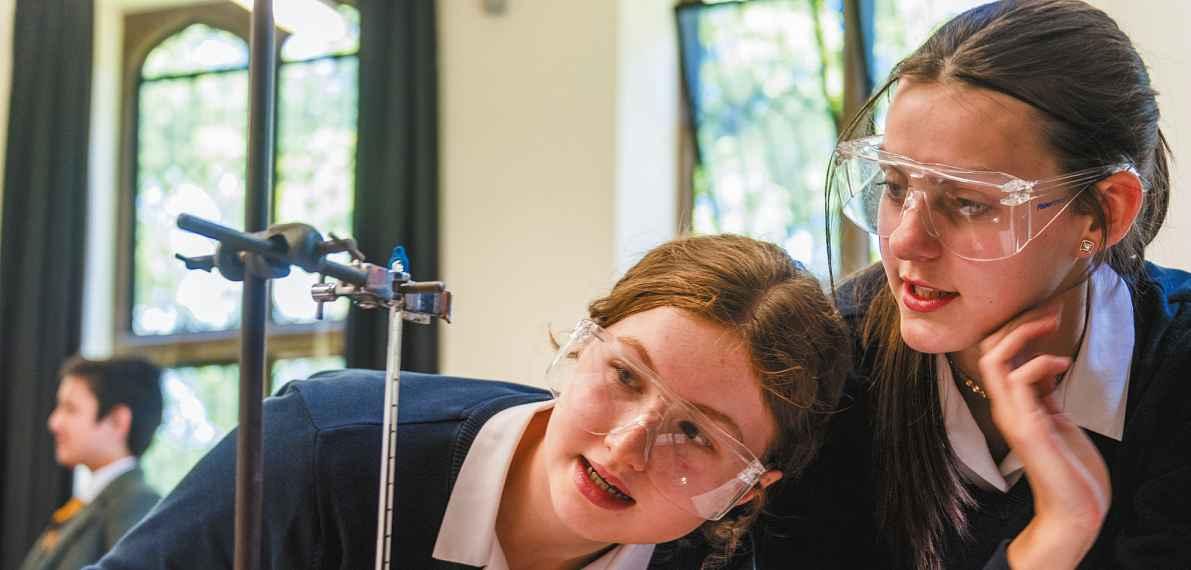








SATURDAY 7TH OCTOBER
•01952 265603 admissions@oldhall.co.uk •01952 223117 DISCOVER OLDHALL AND WREKIN OPEN DAY Reserve your place: Independentco-educational dayschool 4-11 Wellington, ShropshireTF1 3LB Independentco-educational day andboarding school 11 -18 Wellington, ShropshireTF1 3BH Enjoya tour of ourschools,hearfrom staff and pupils, andask any questions youmay have aboutthe admissions process. www.wrekinoldhall.com Registered CharityNo. 528417
admissions@wrekincollege.com







































































































































































































